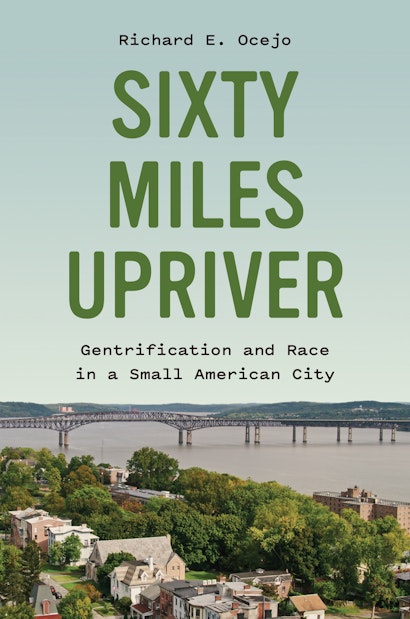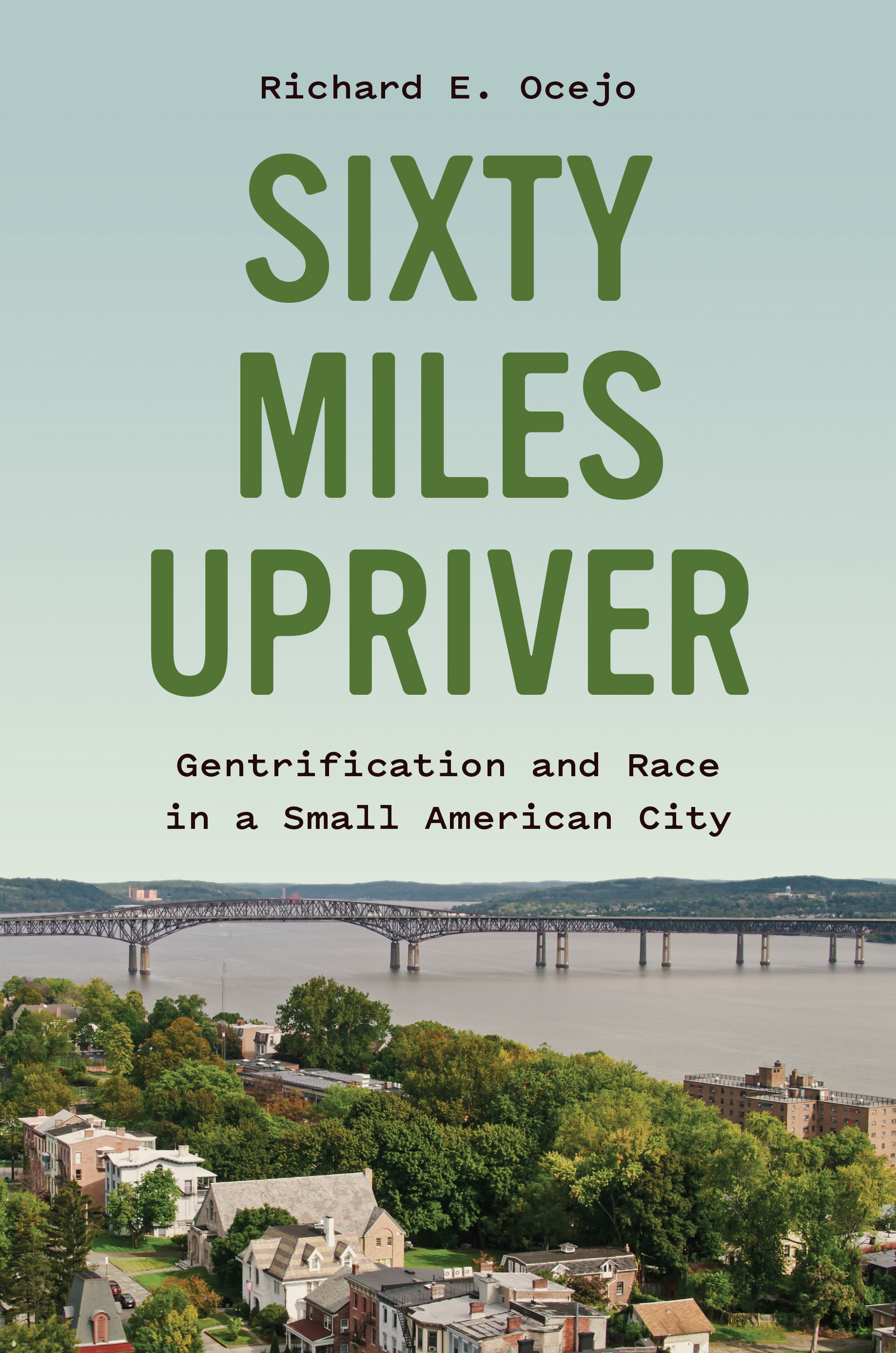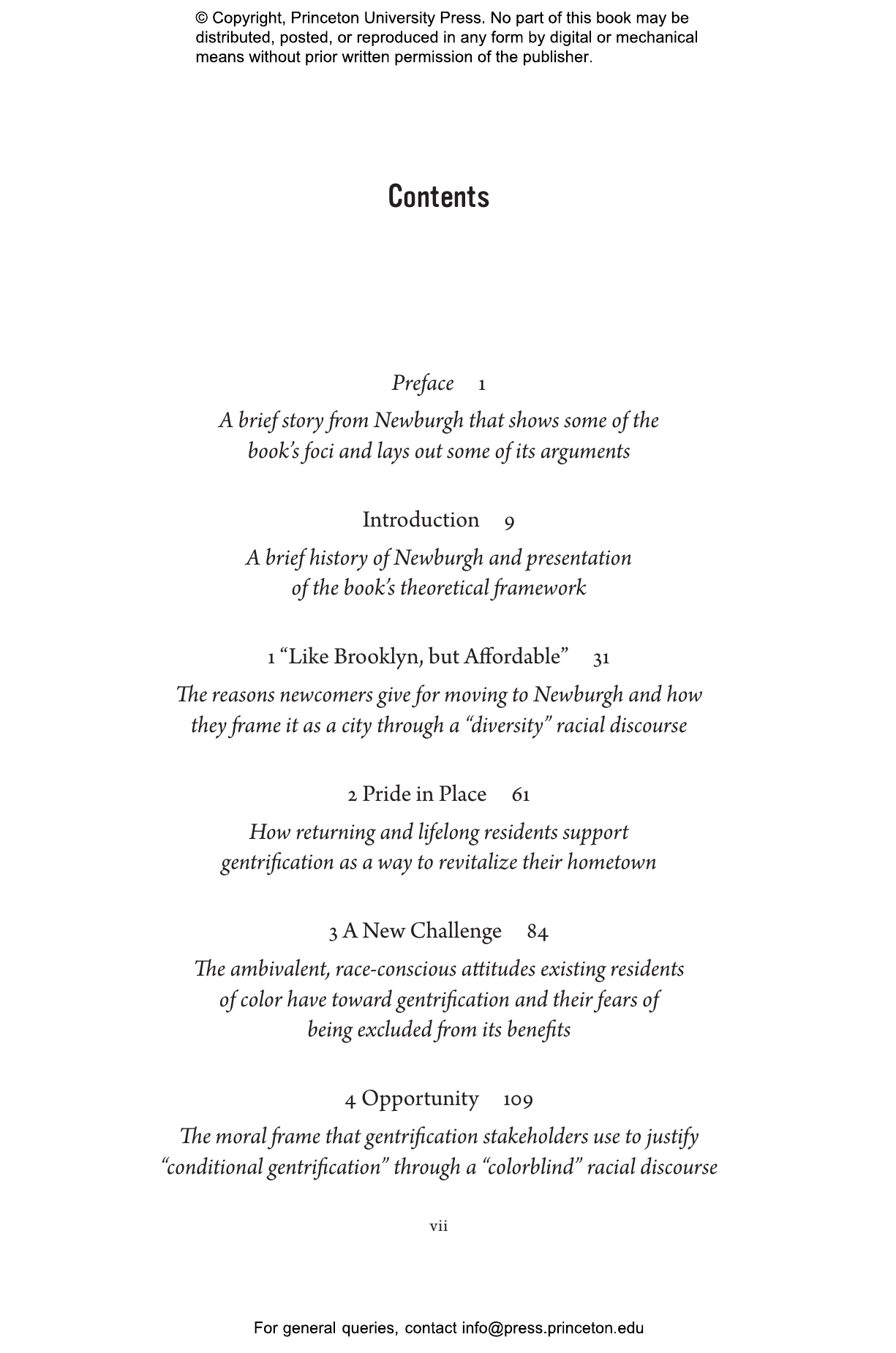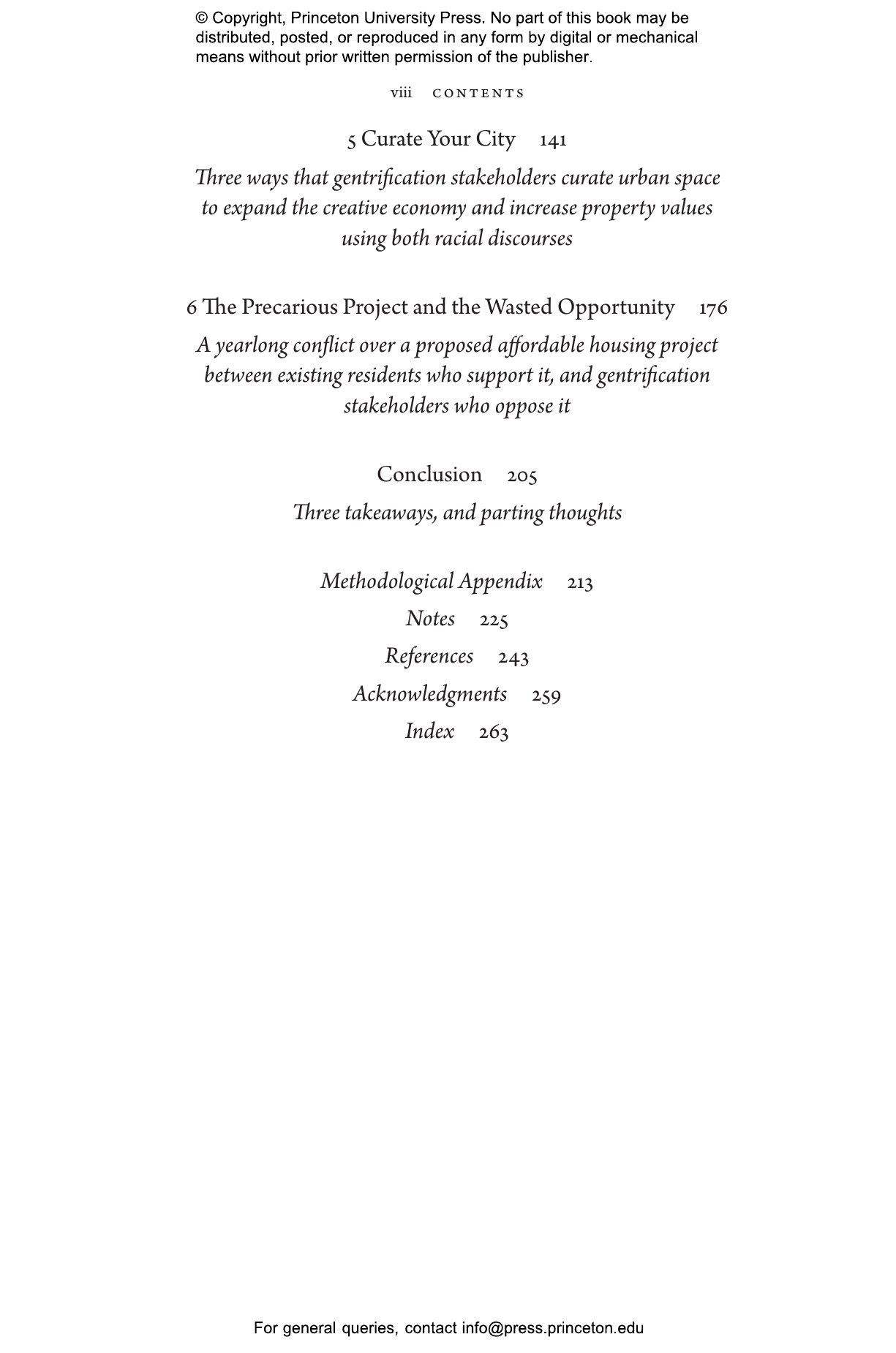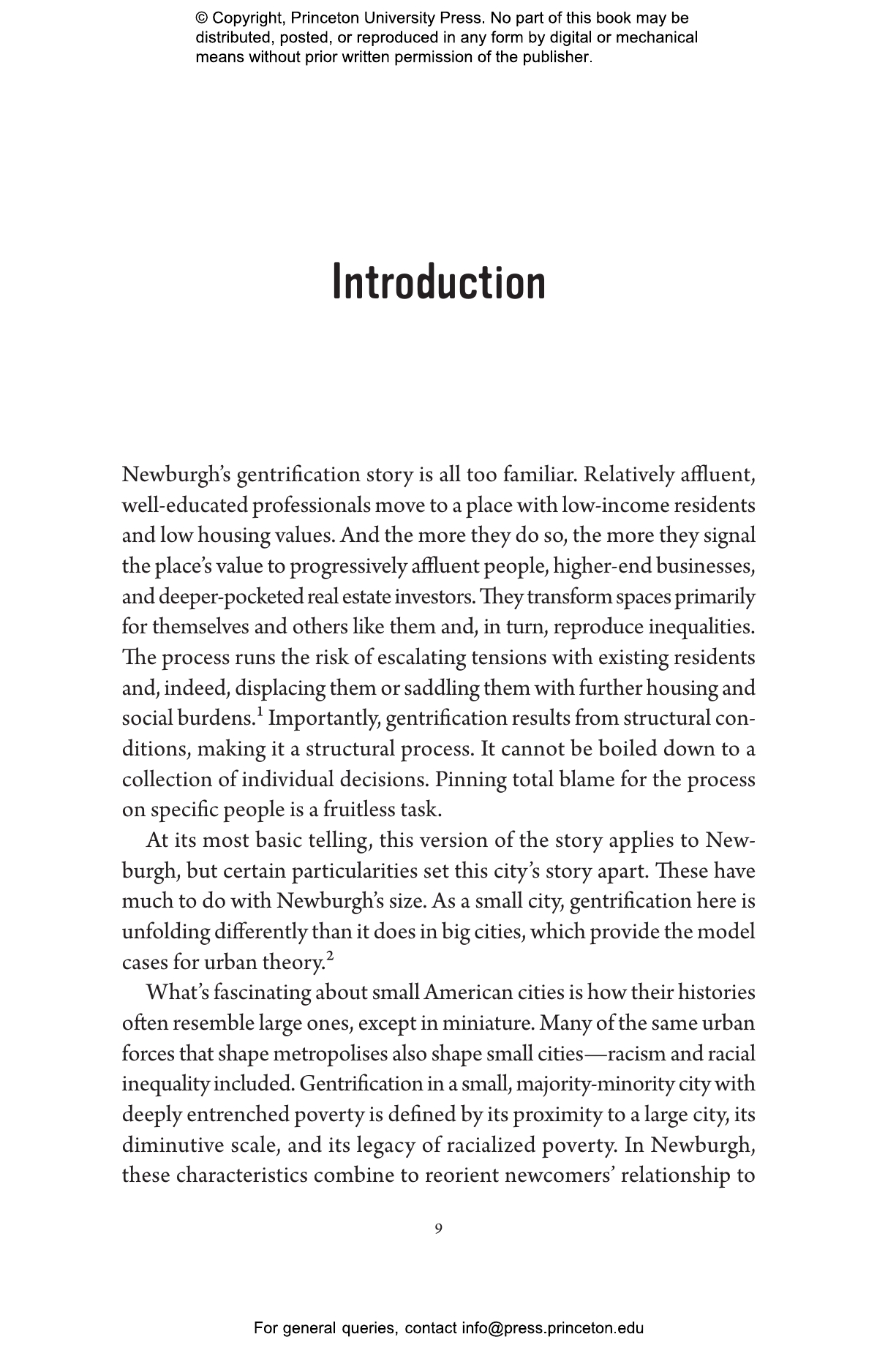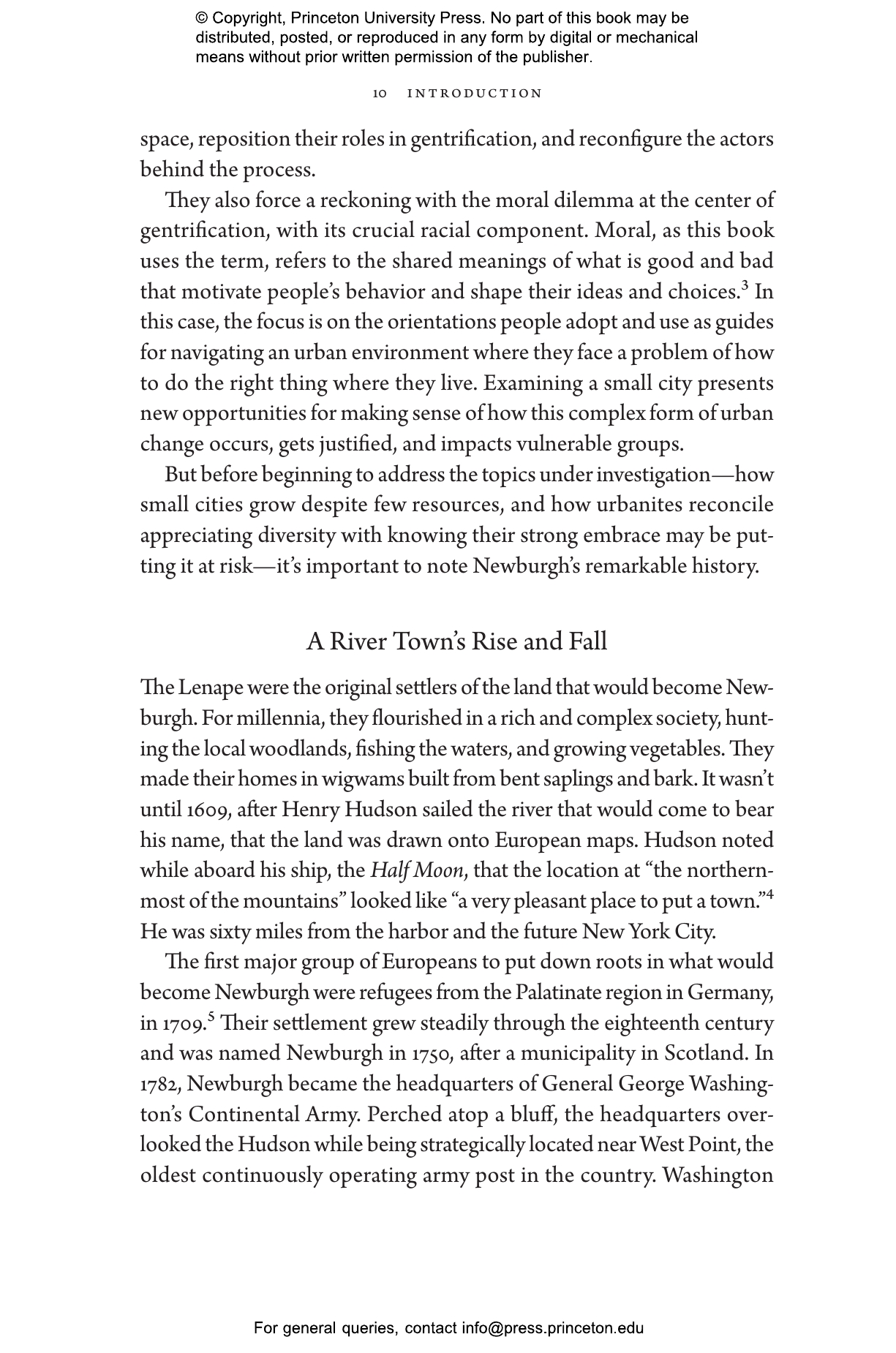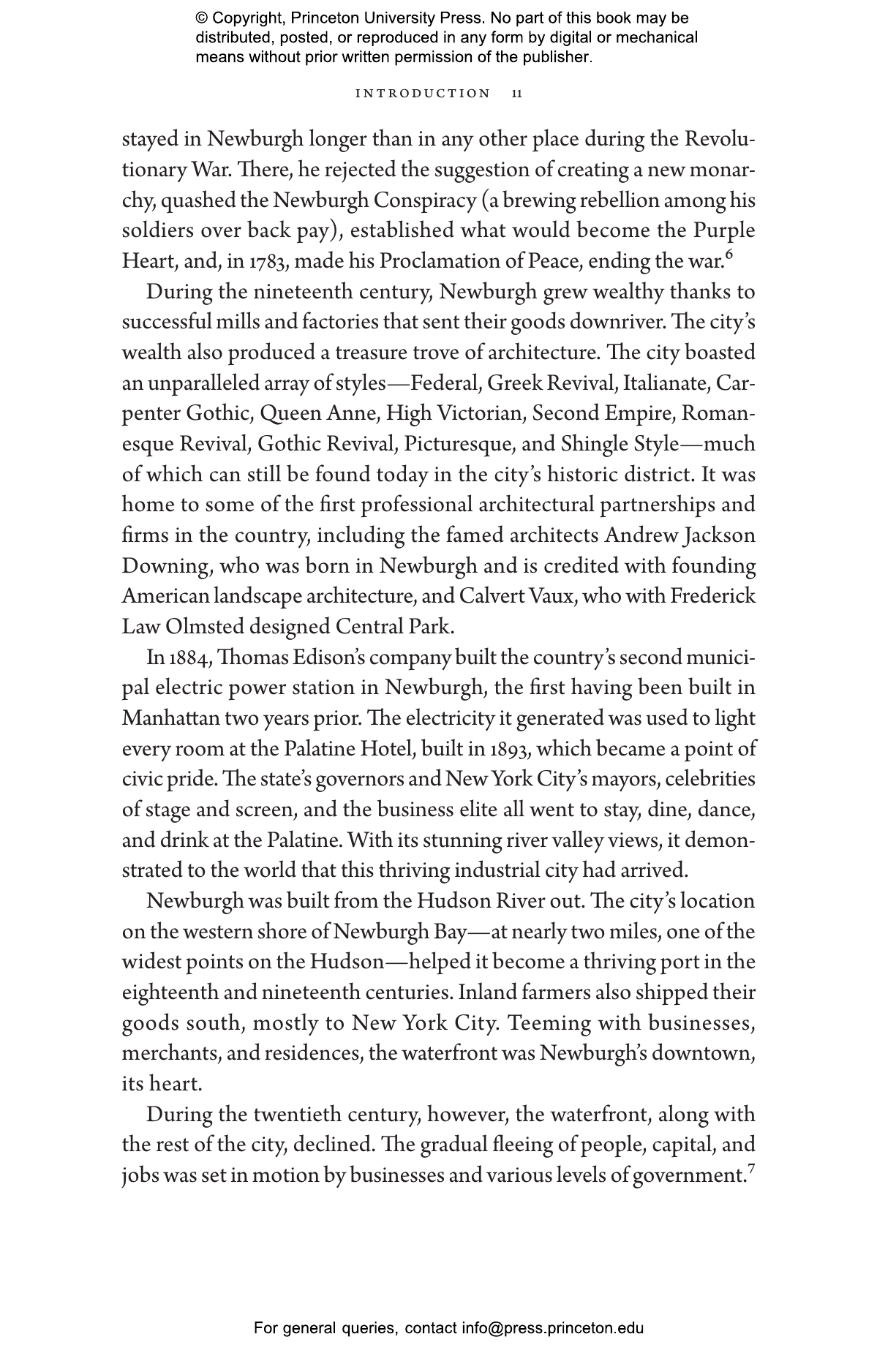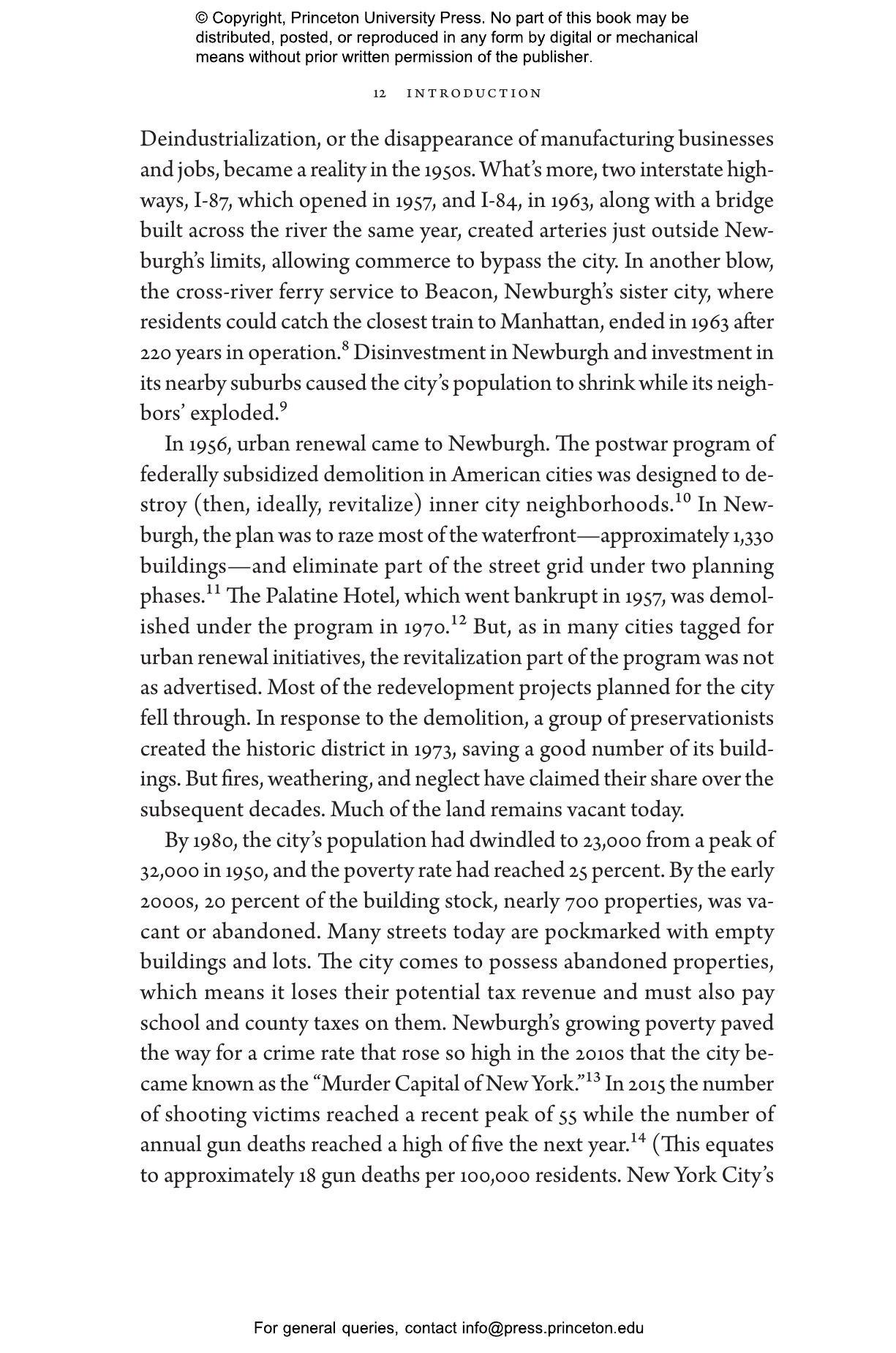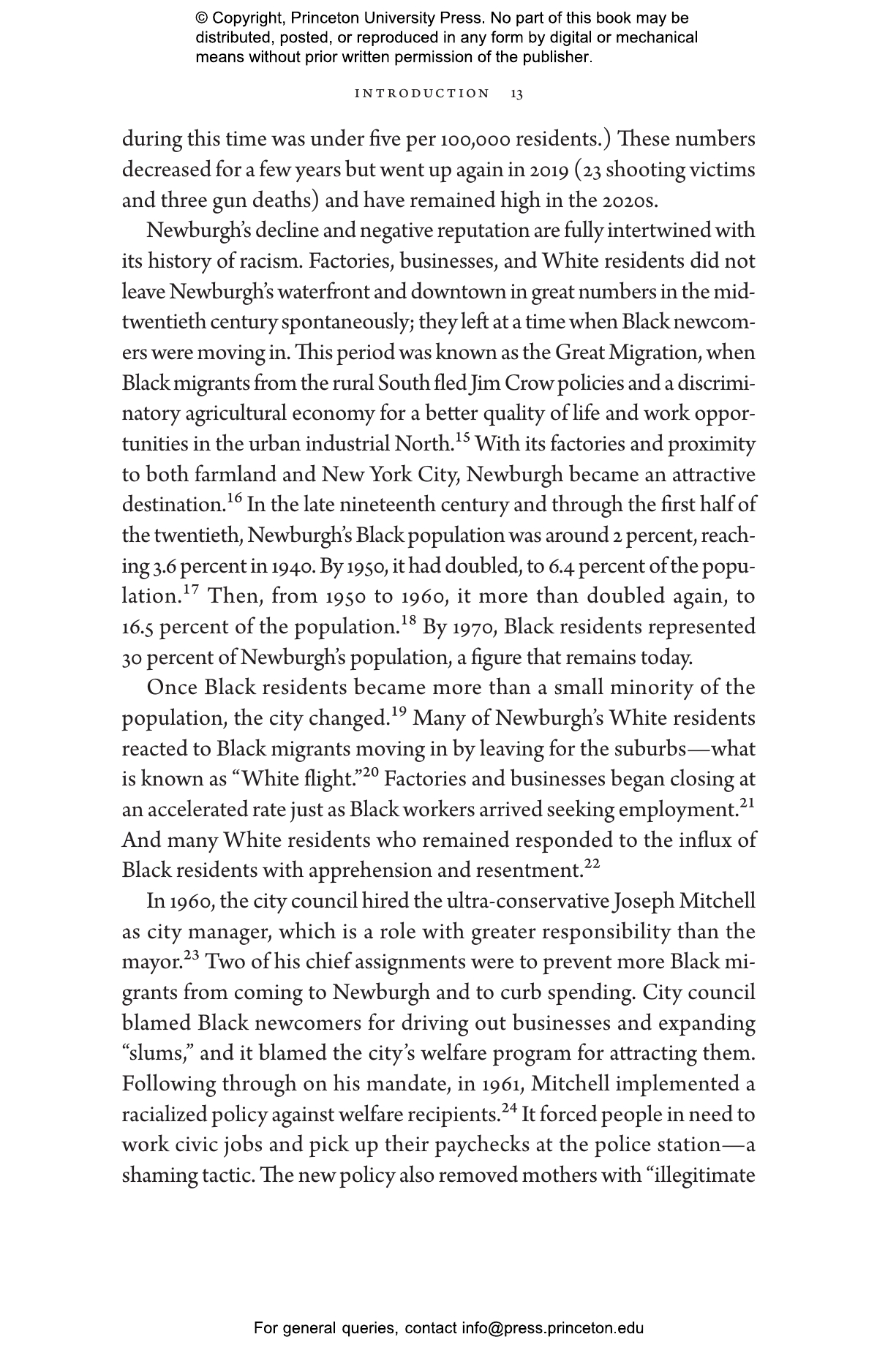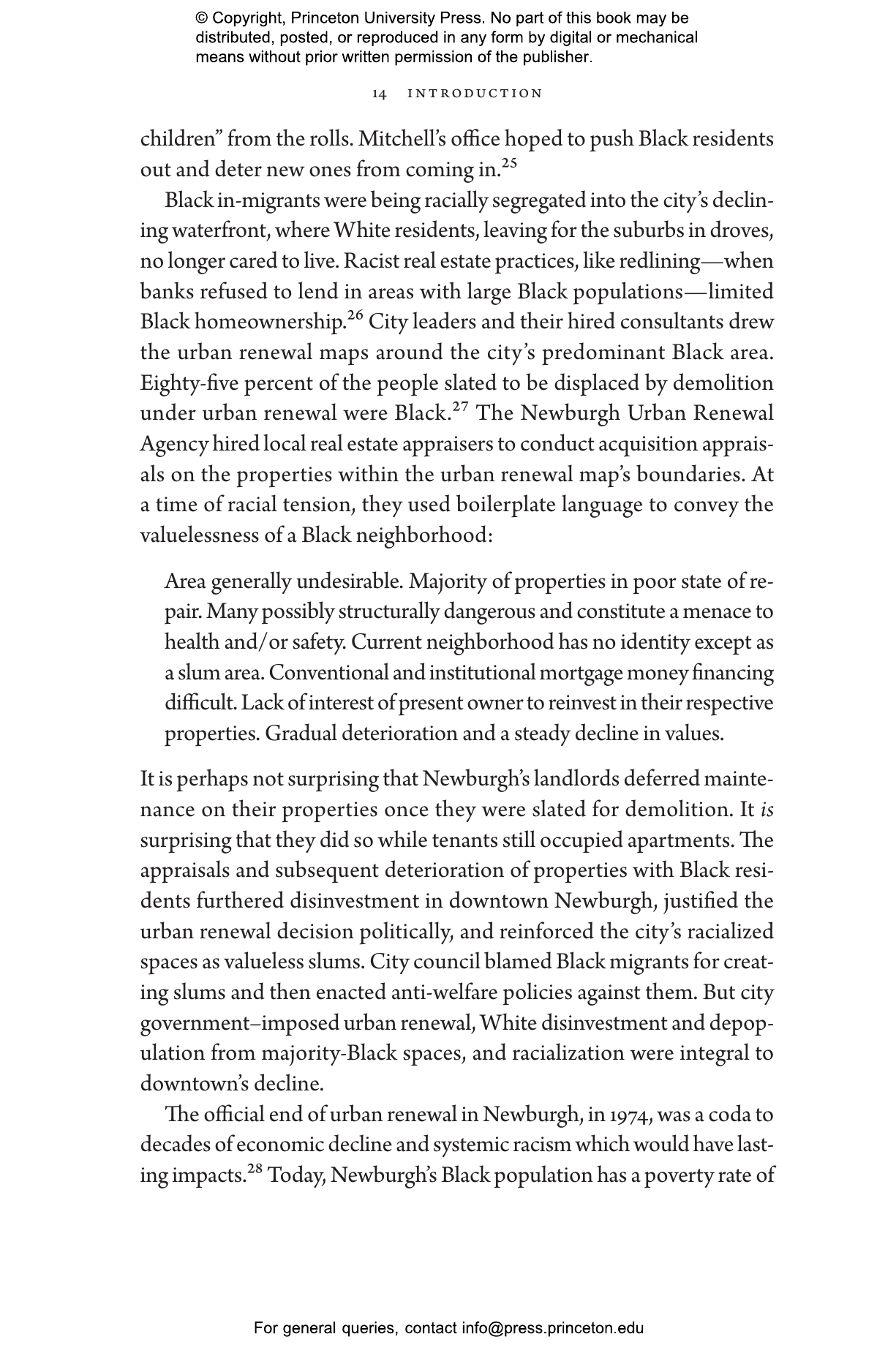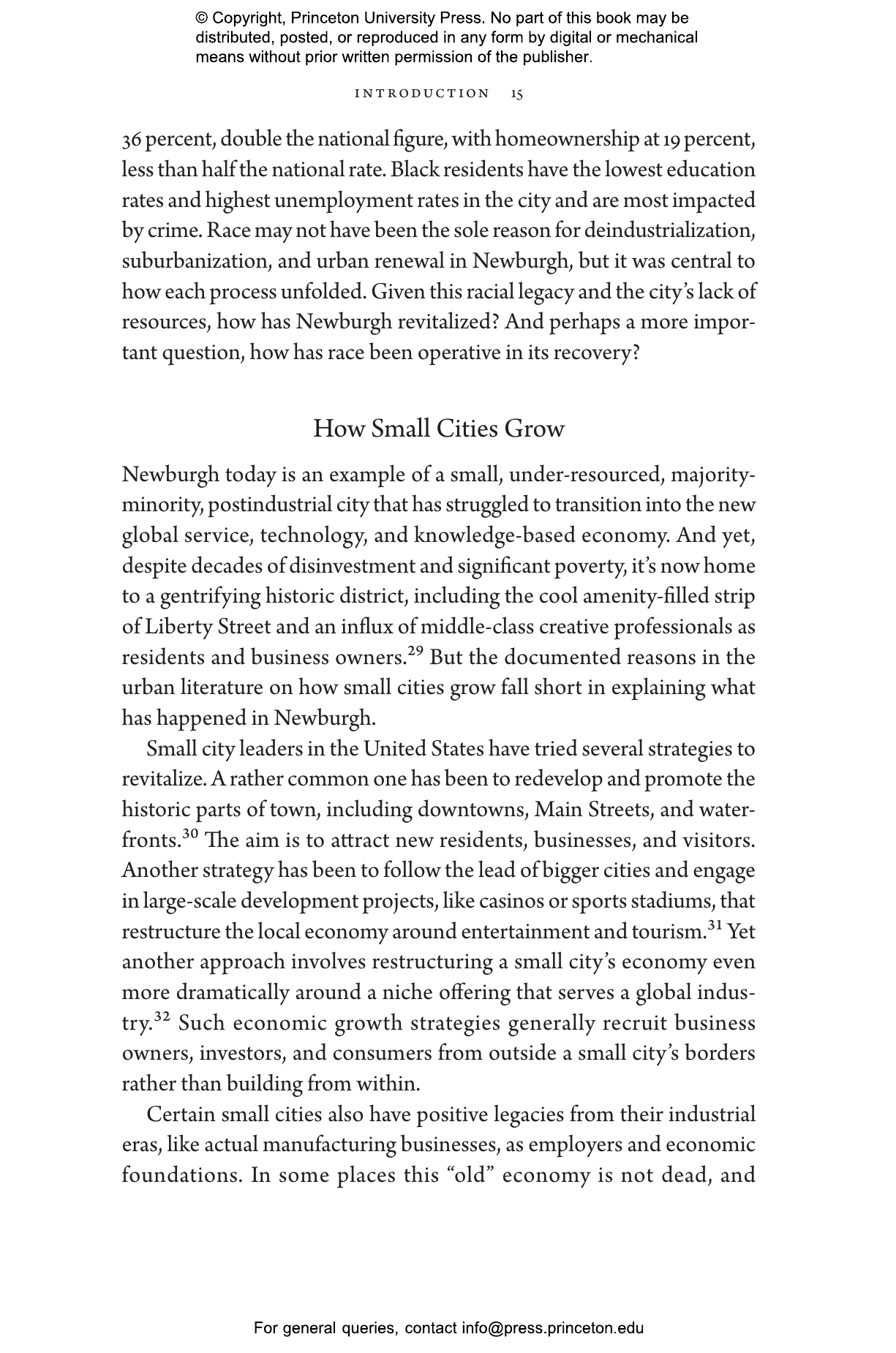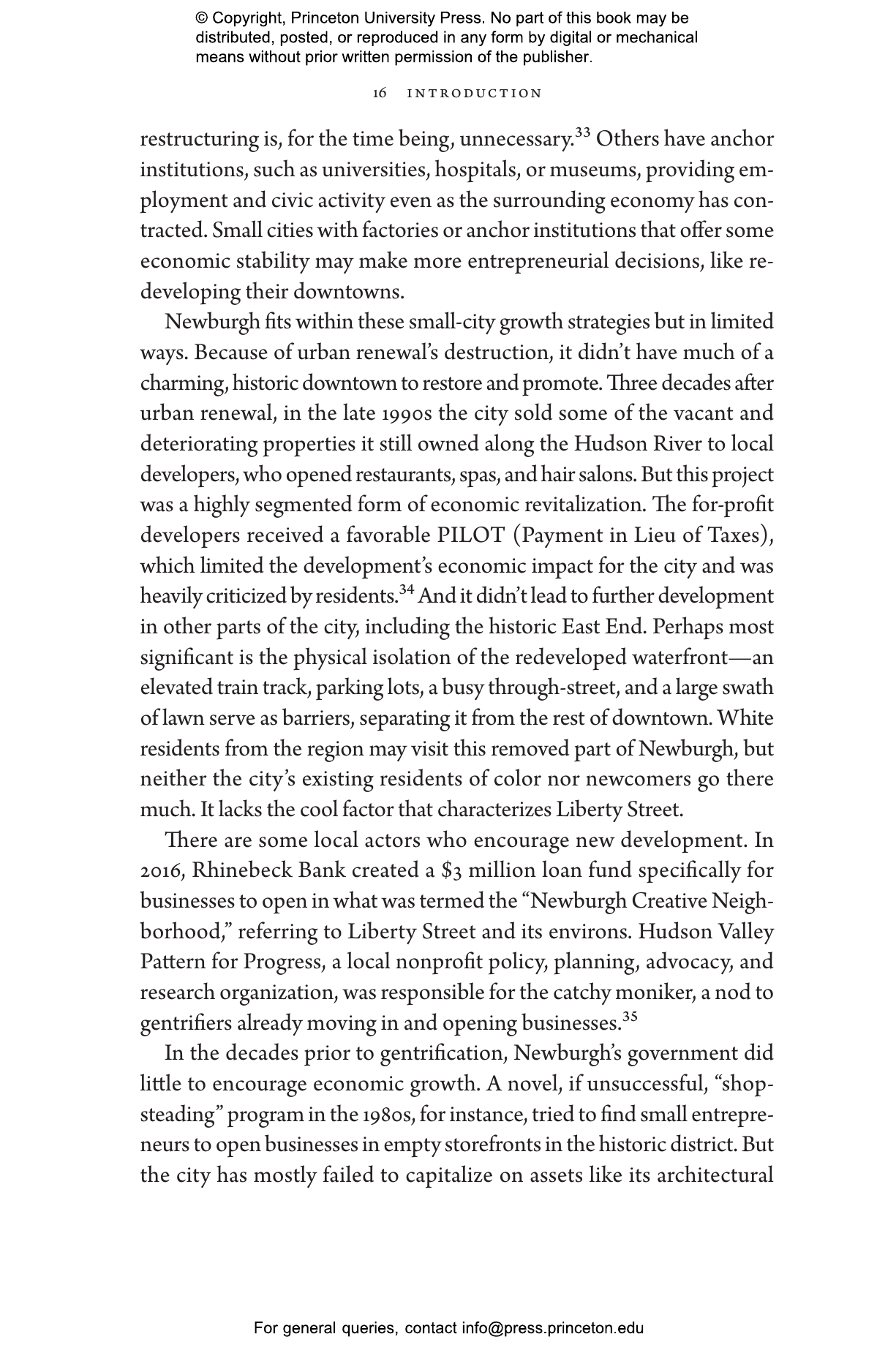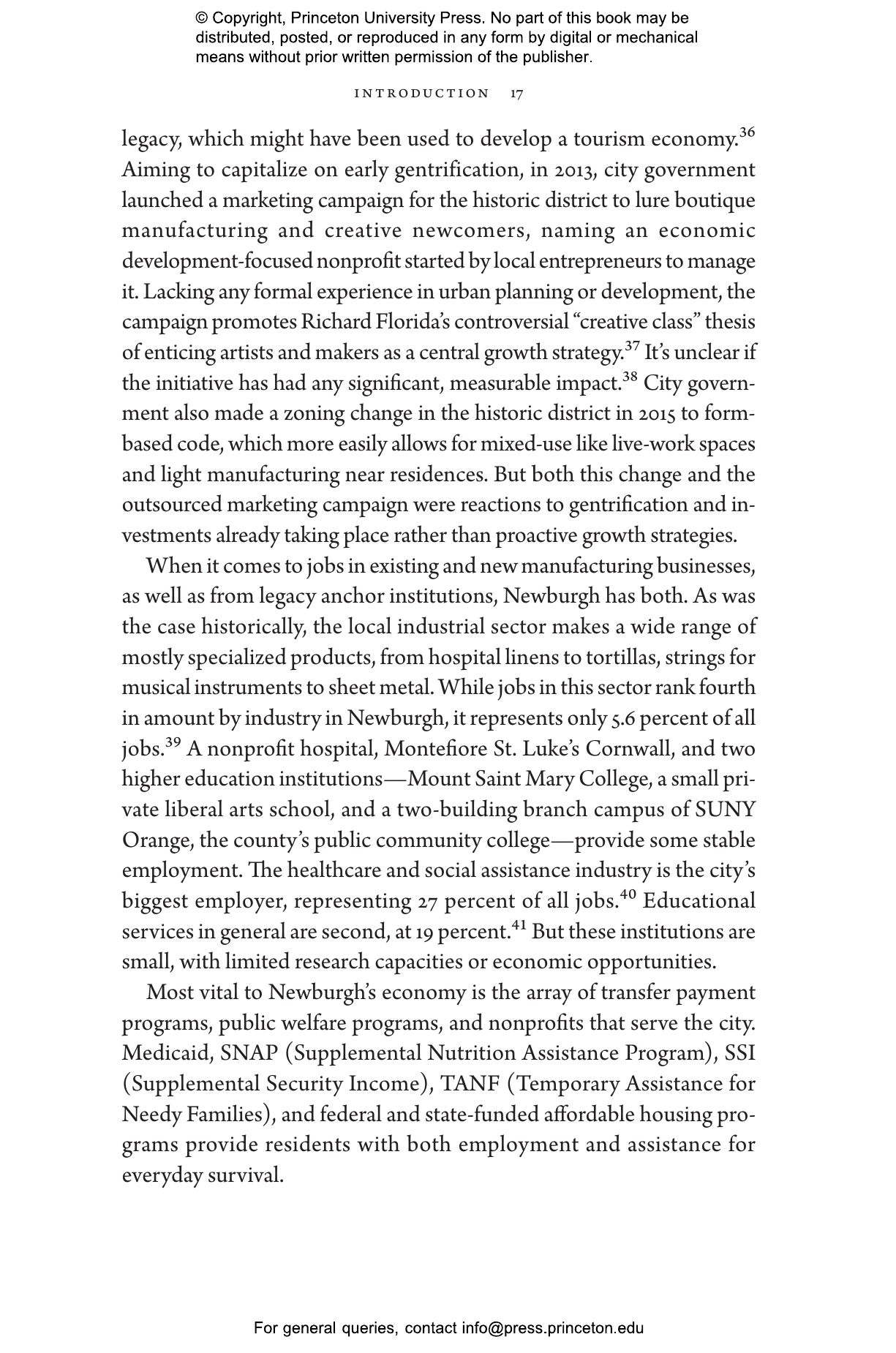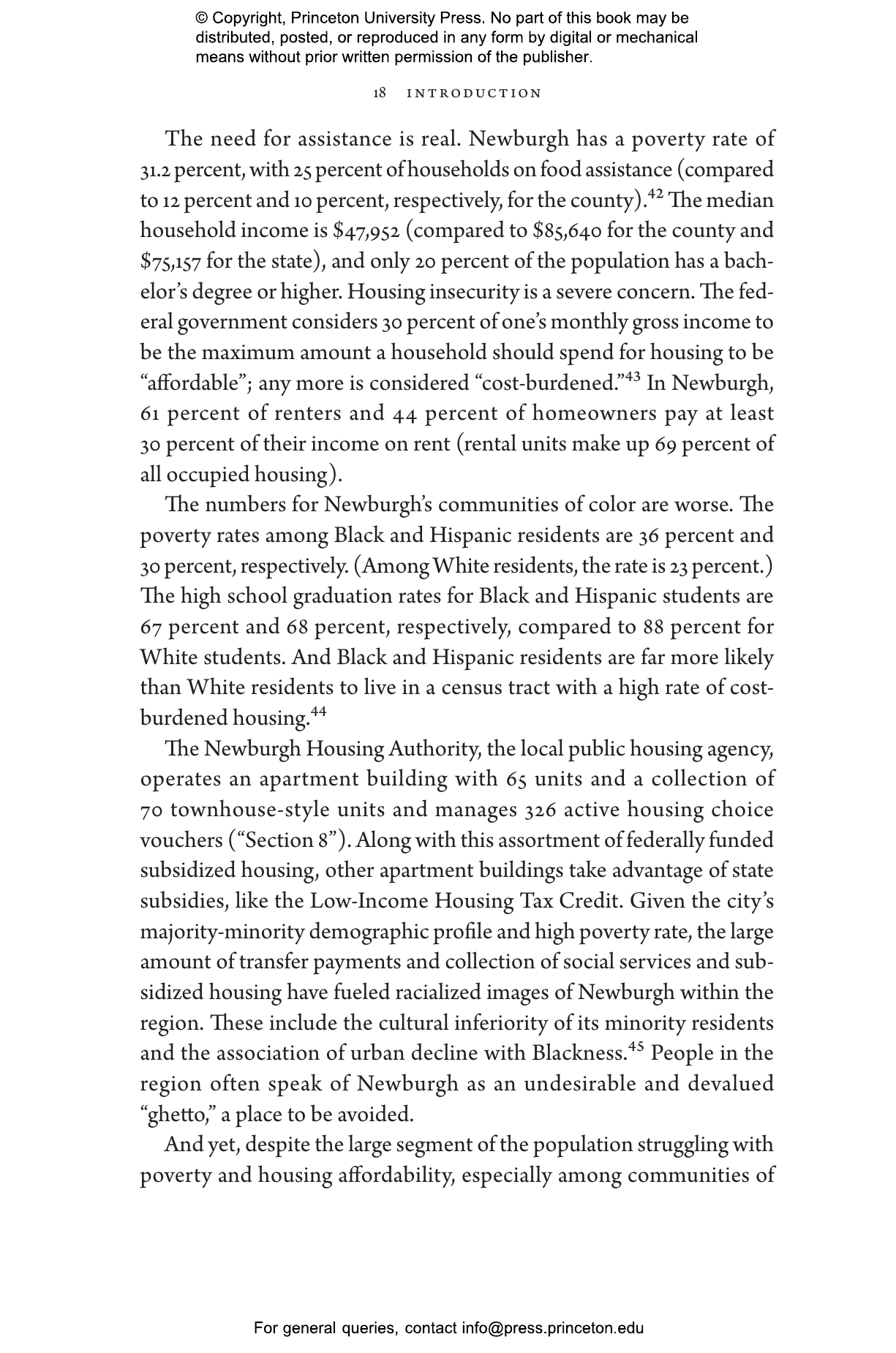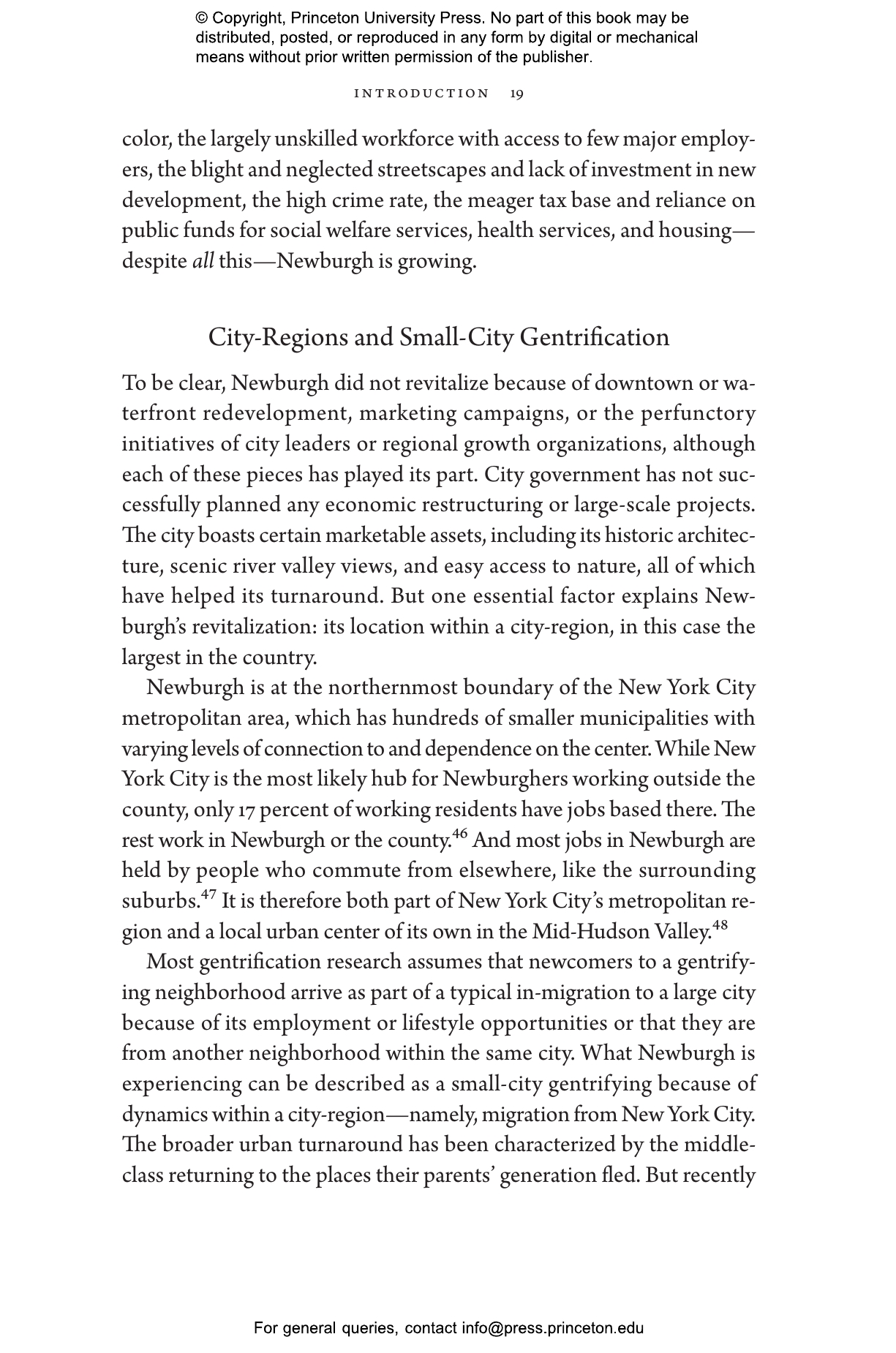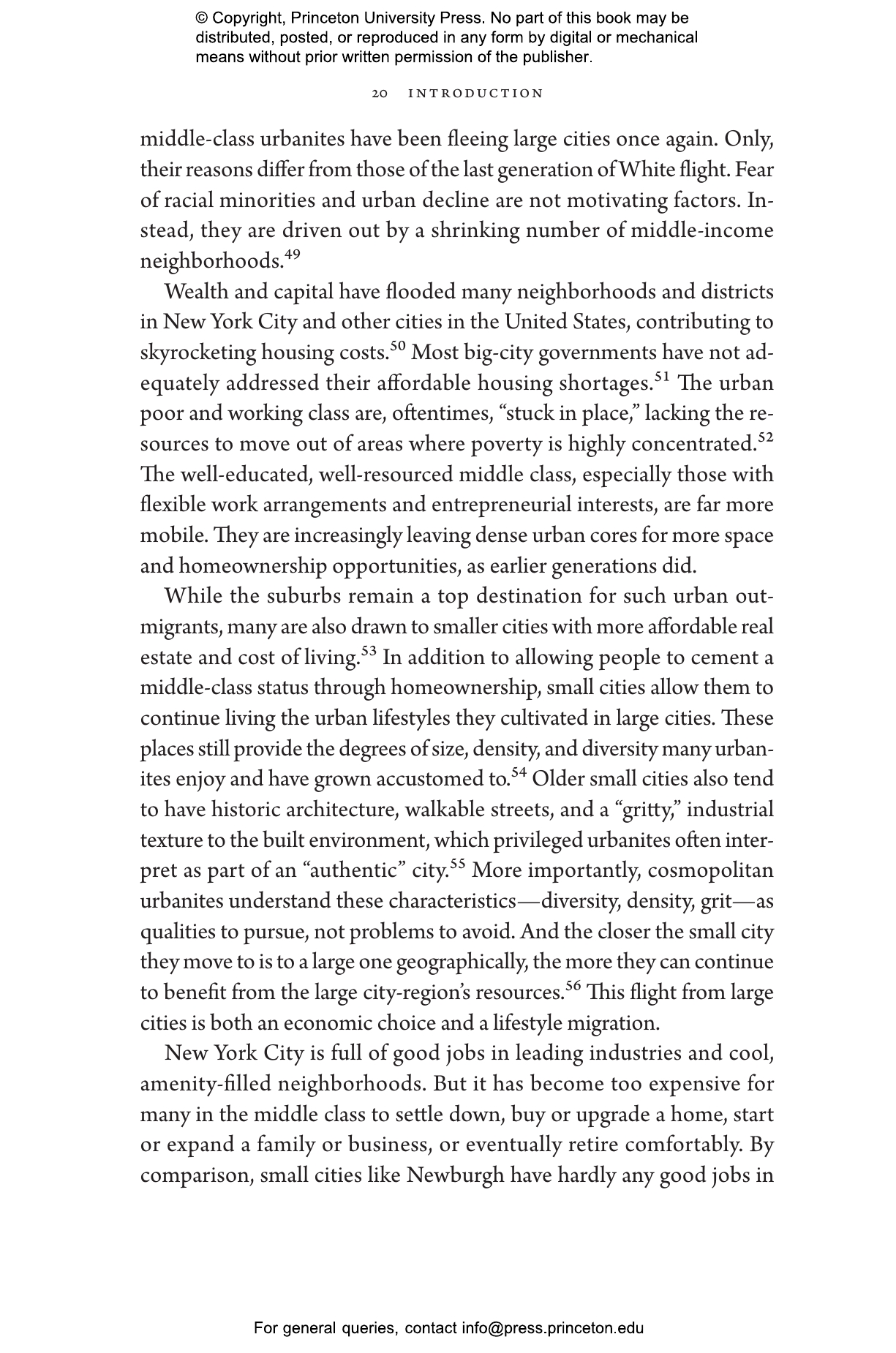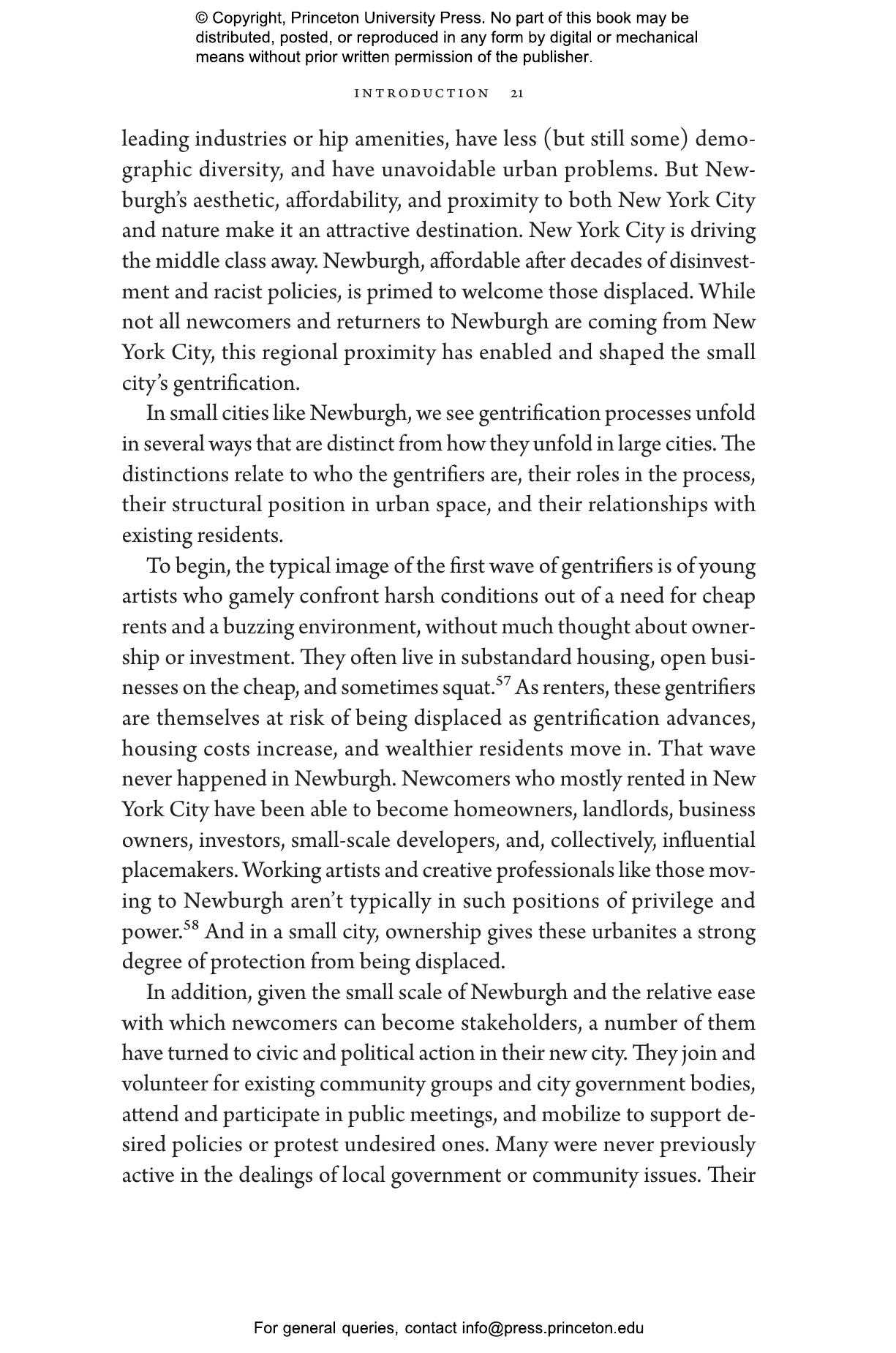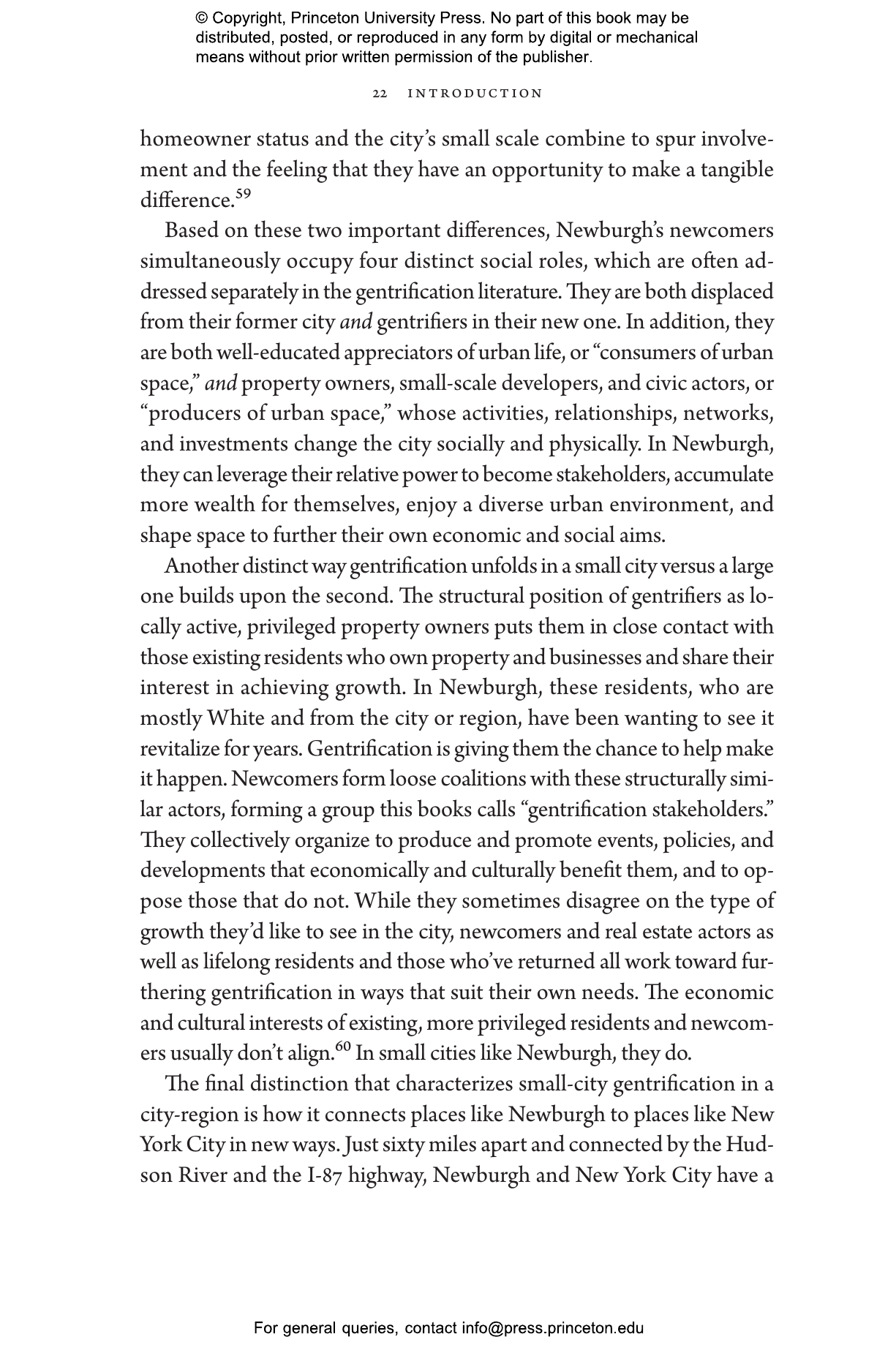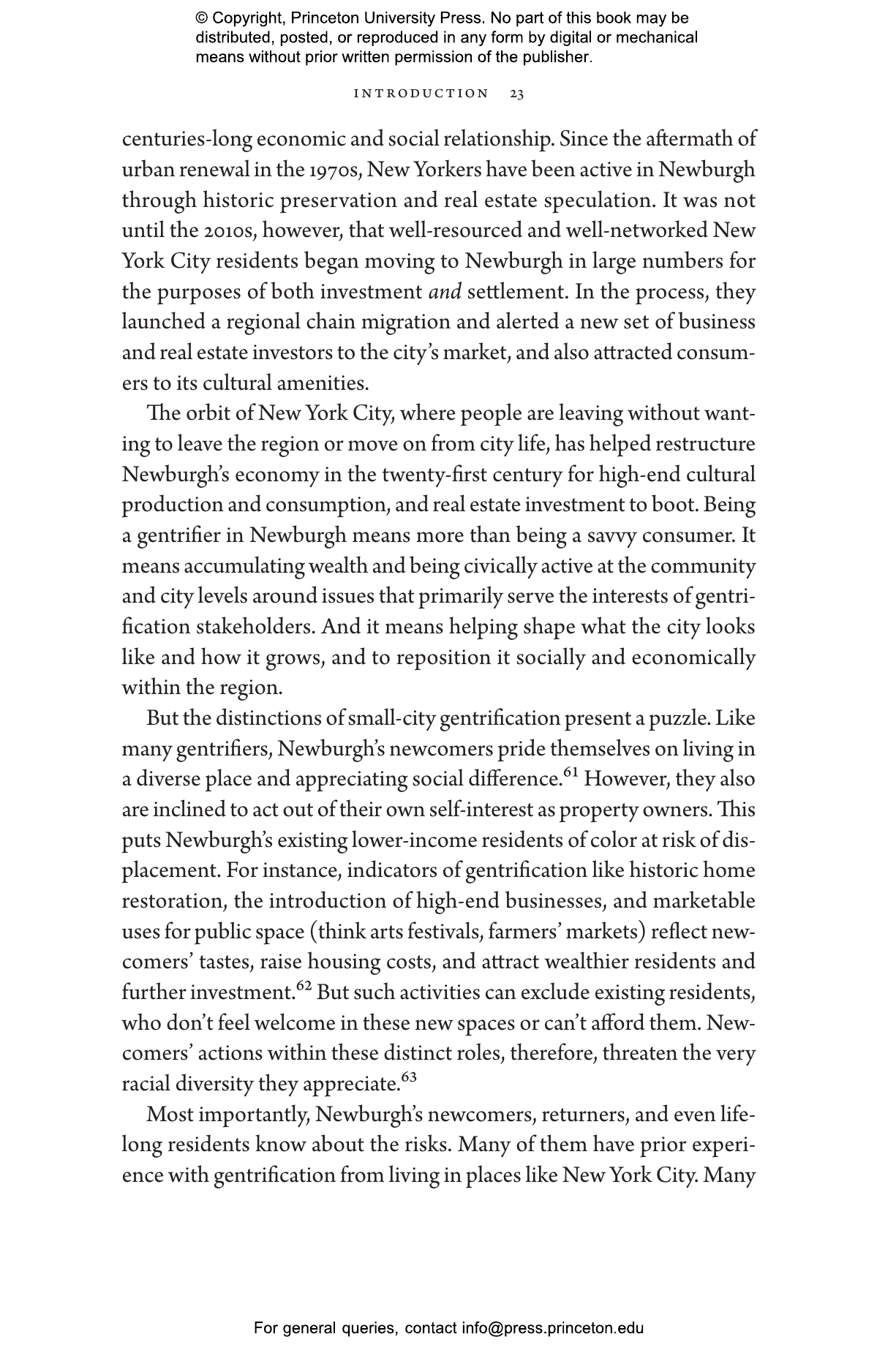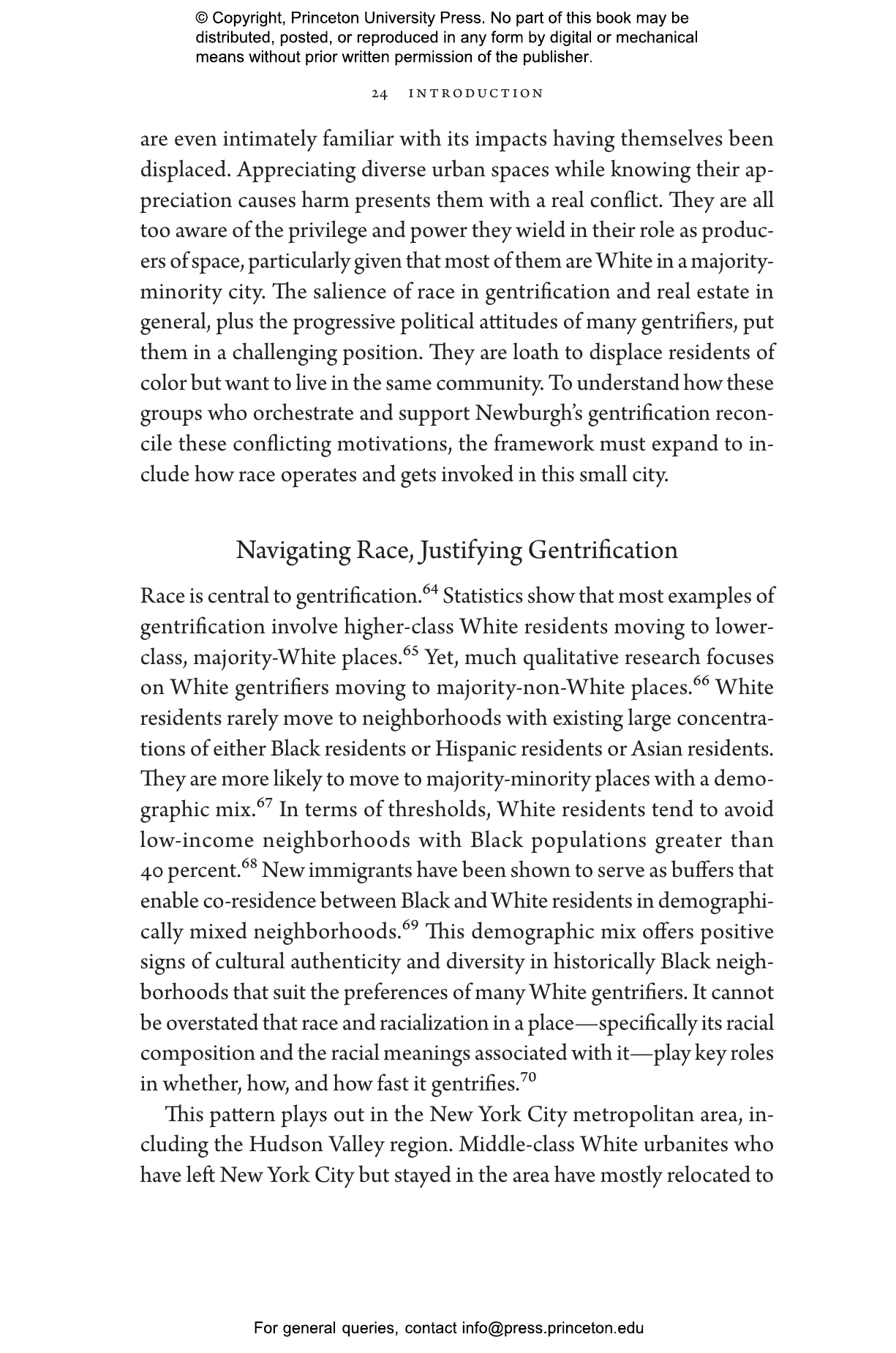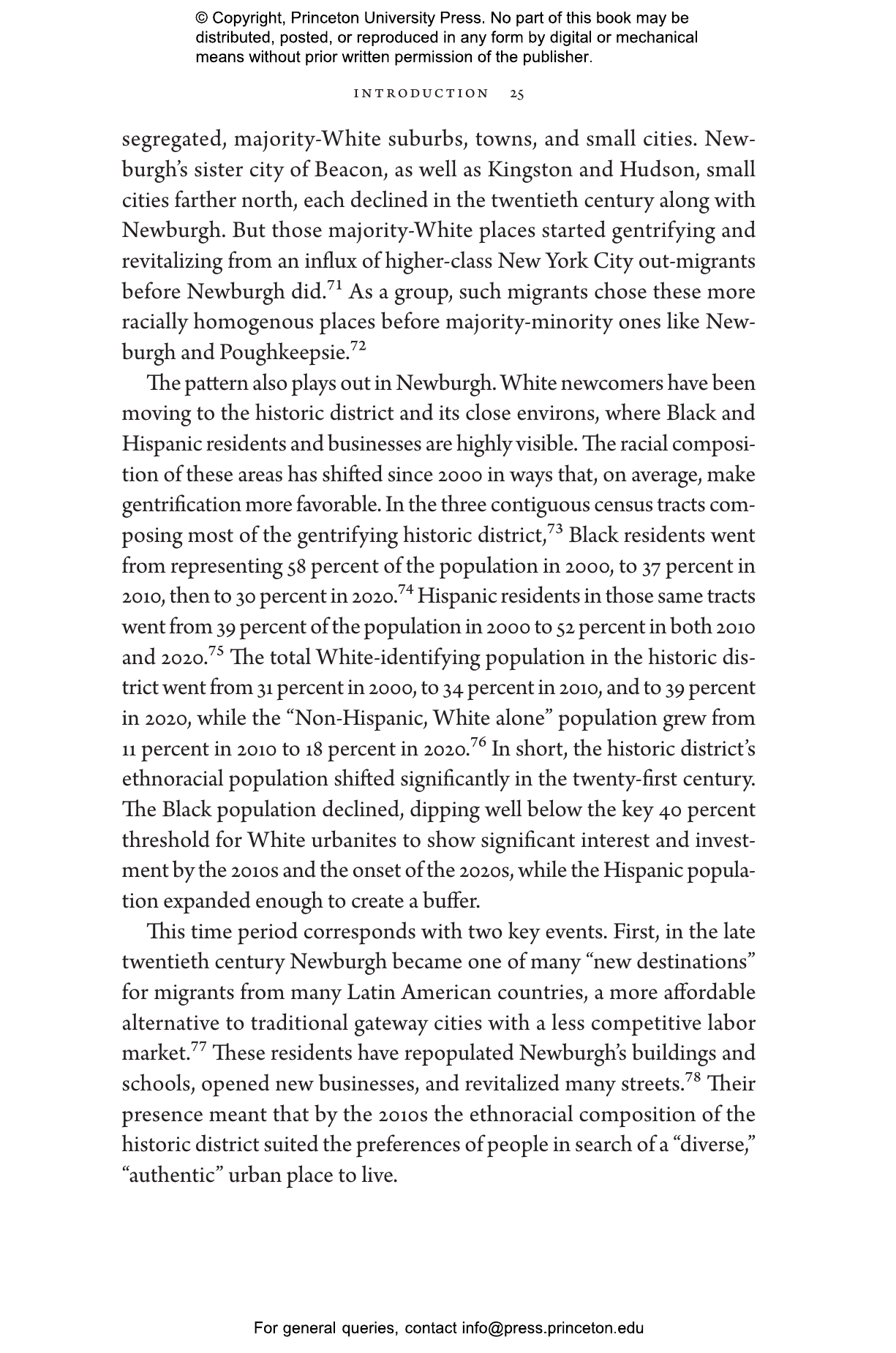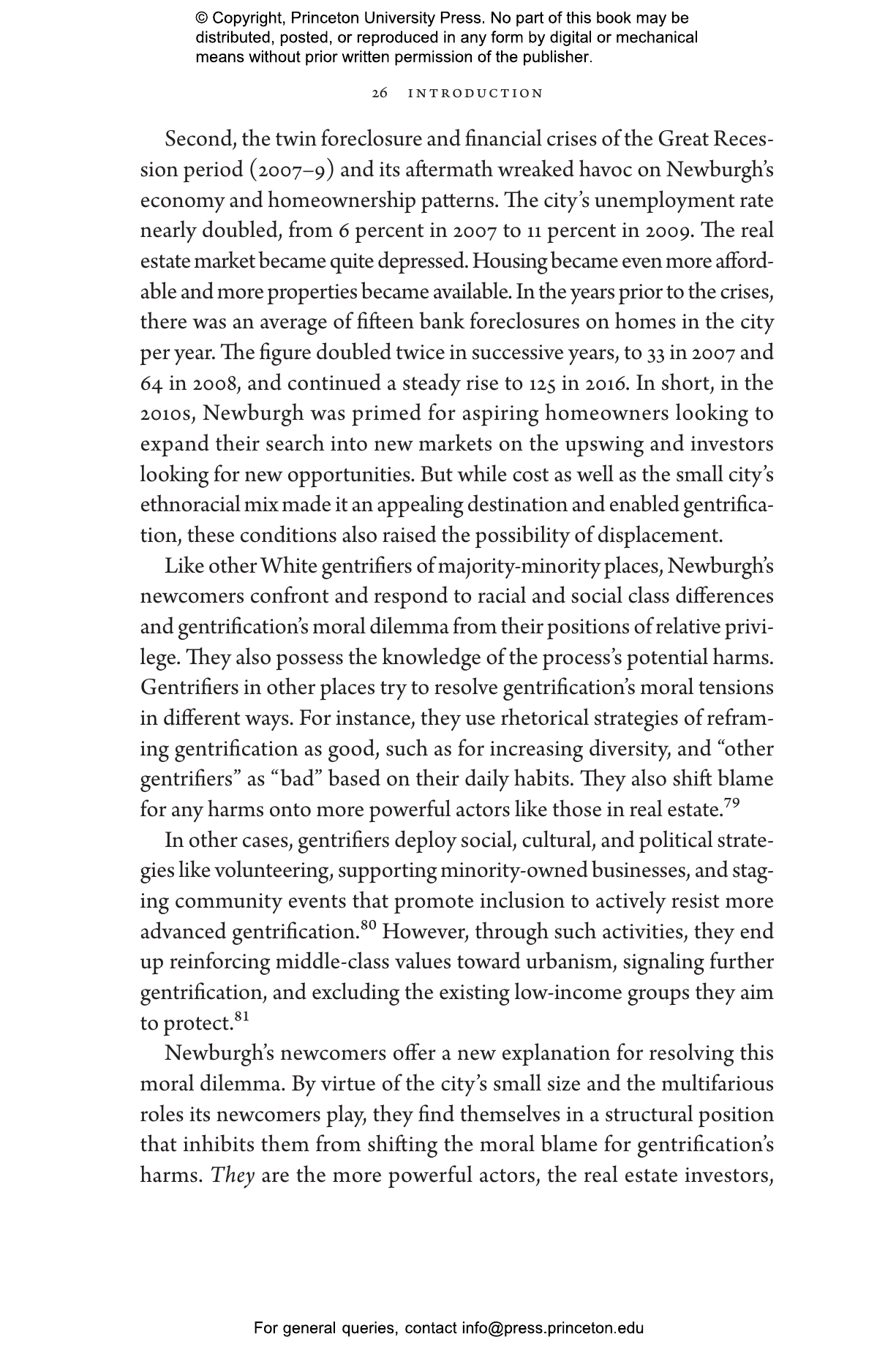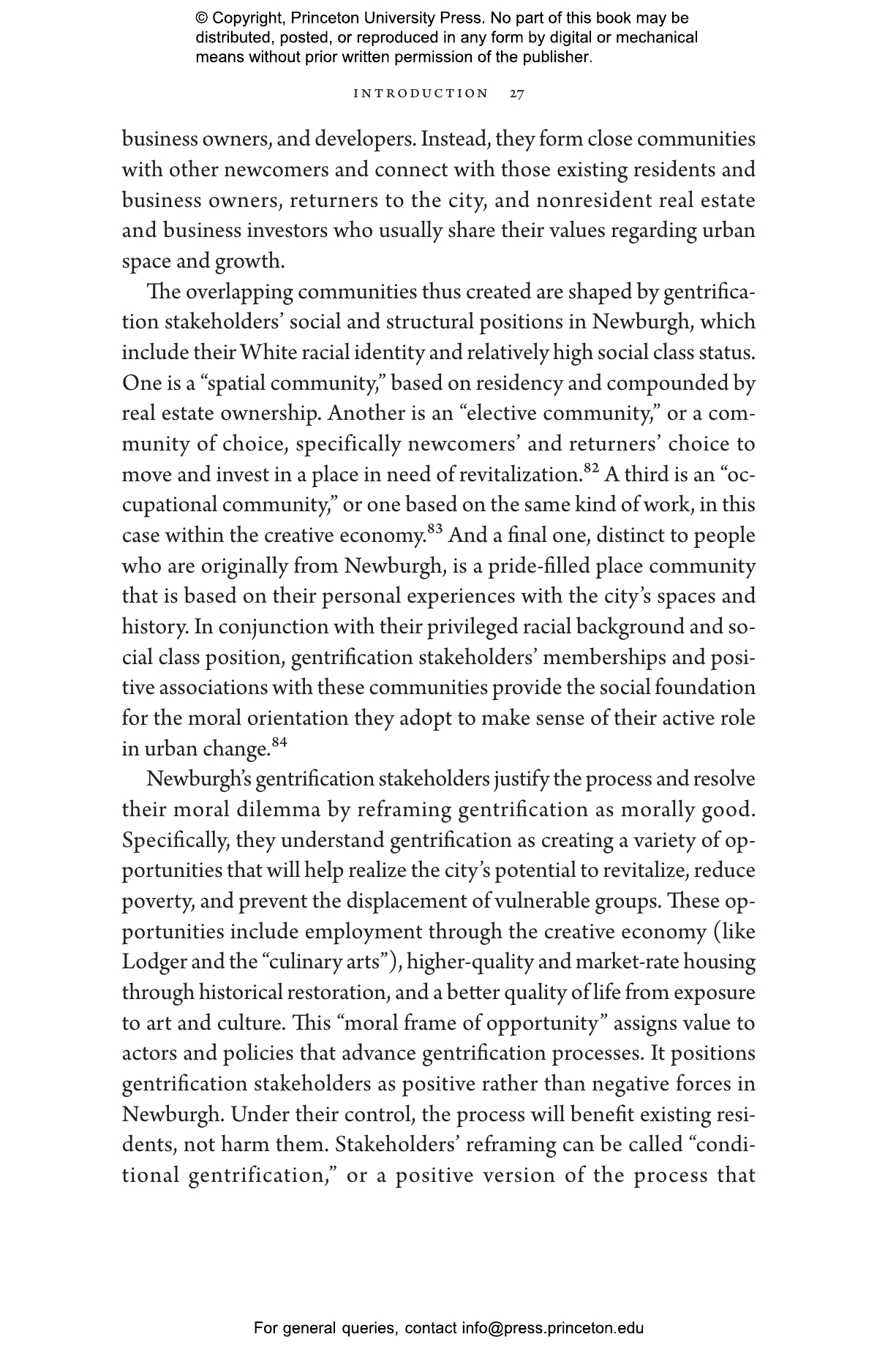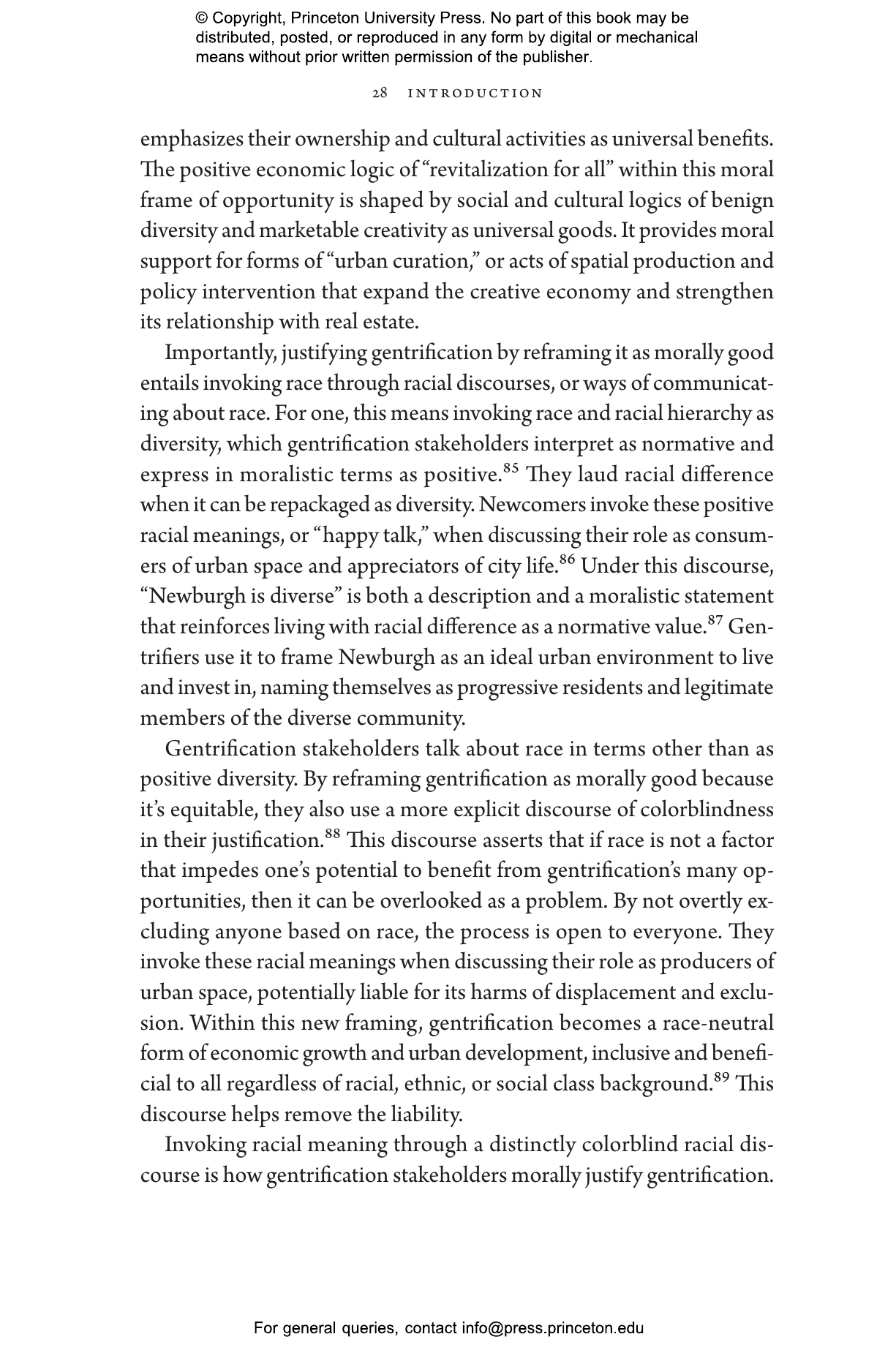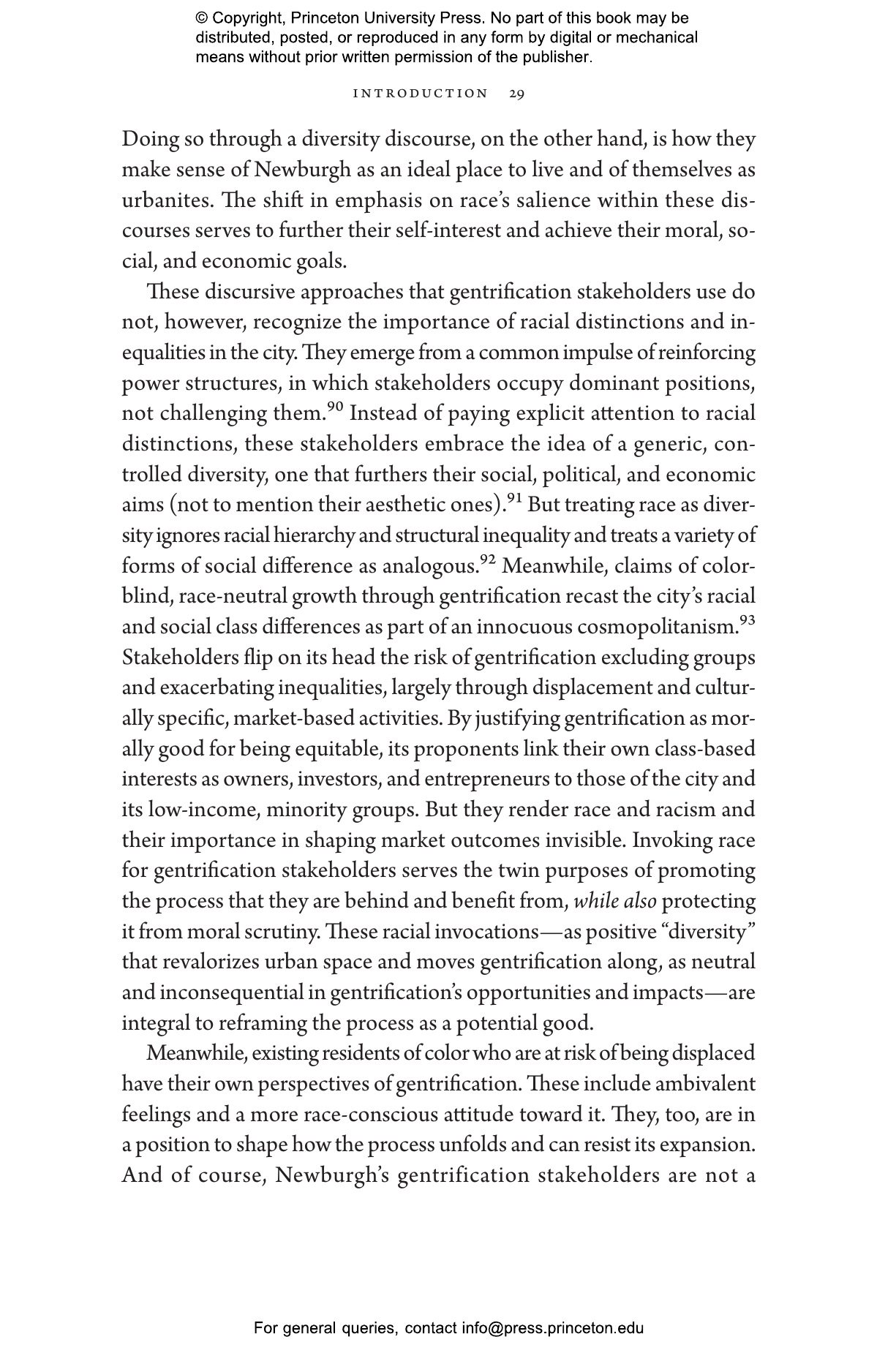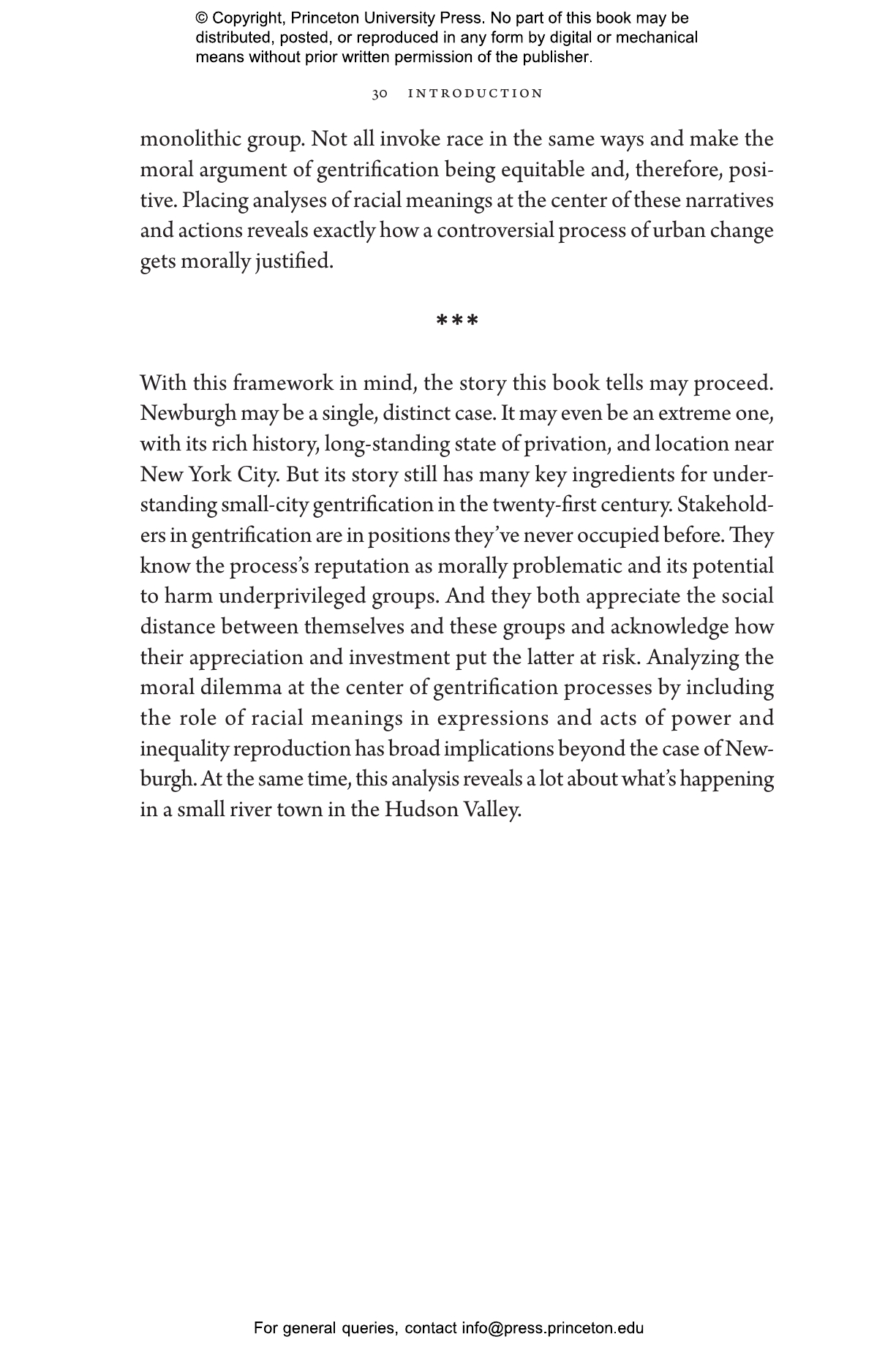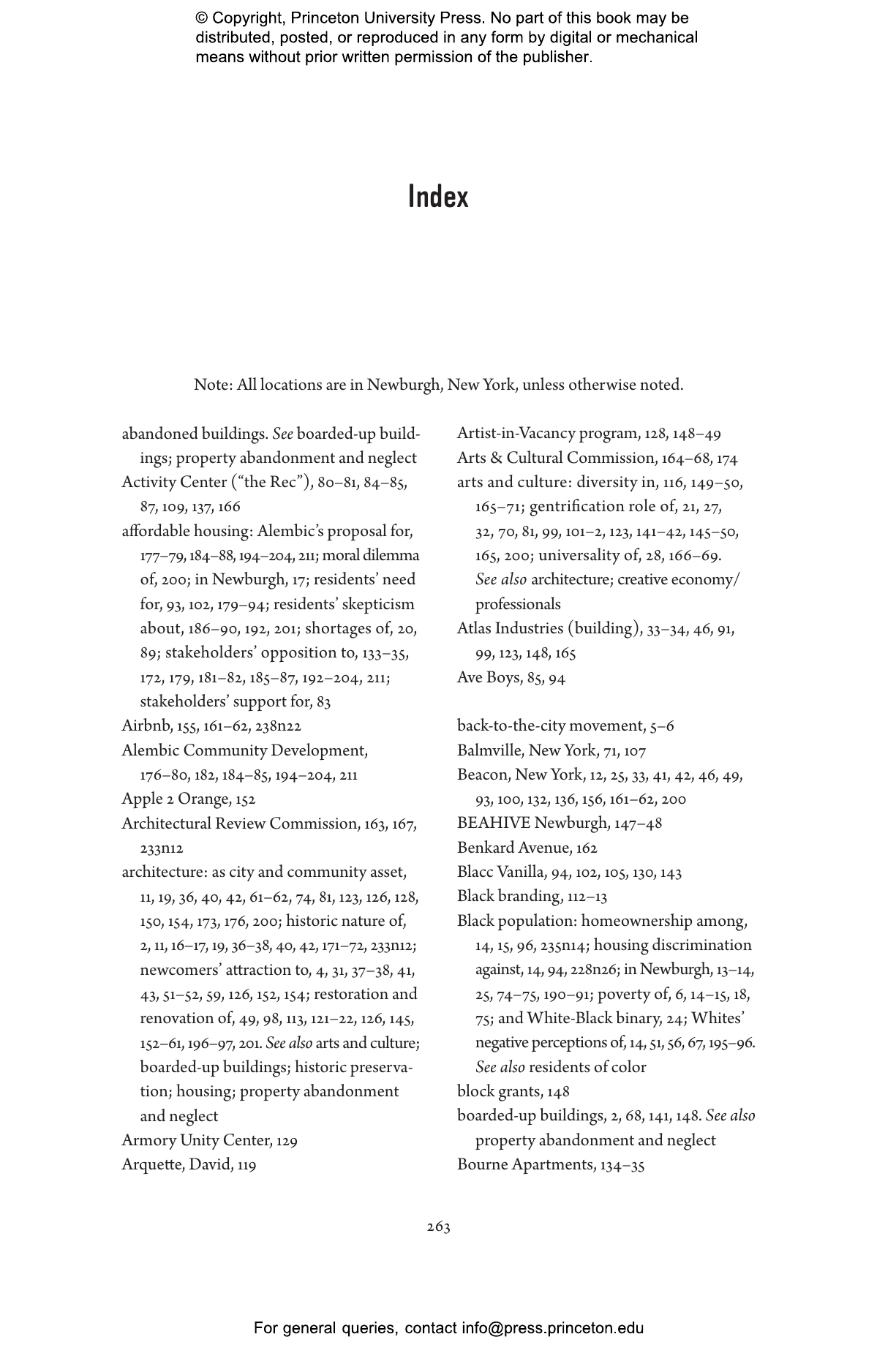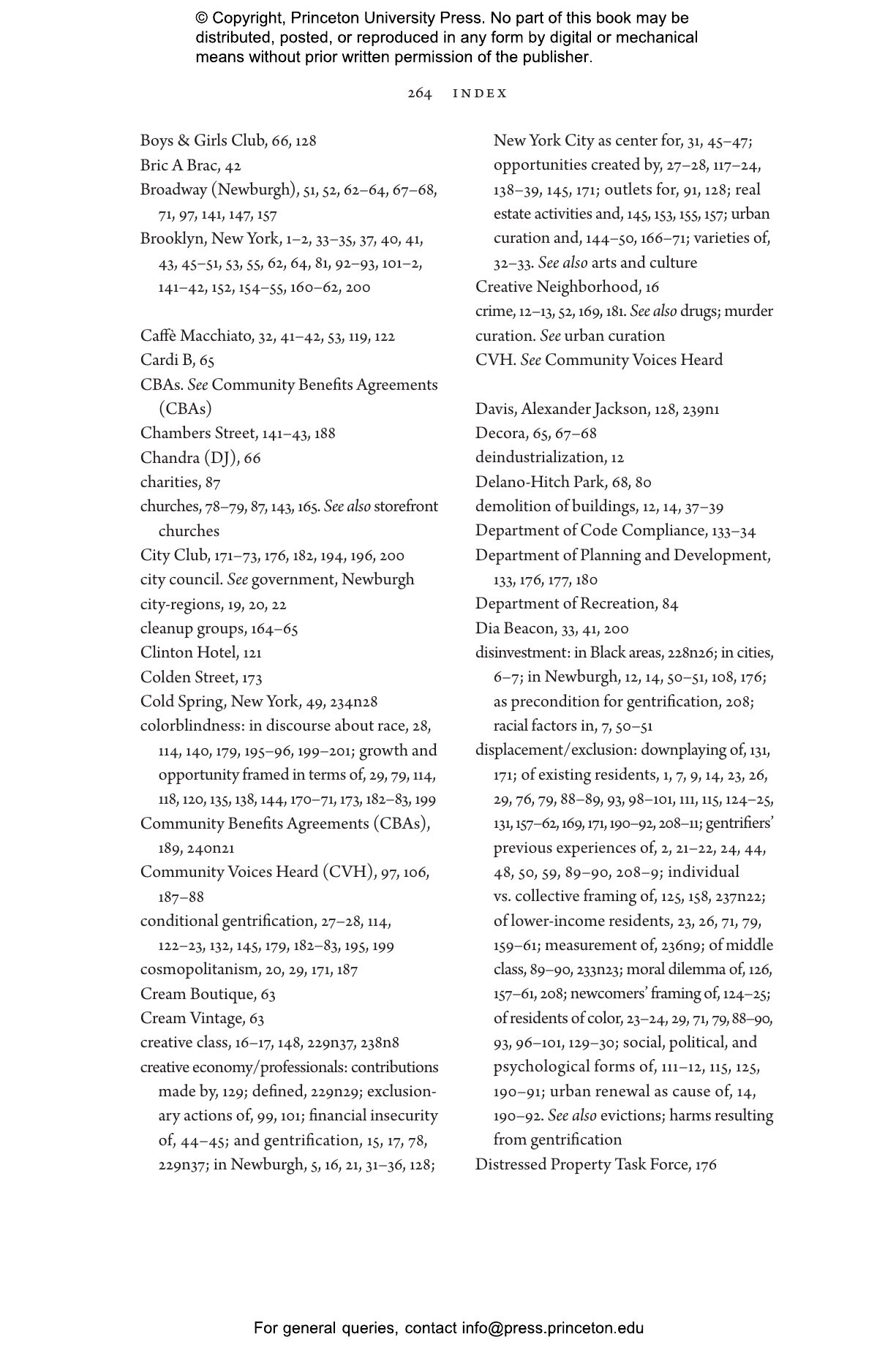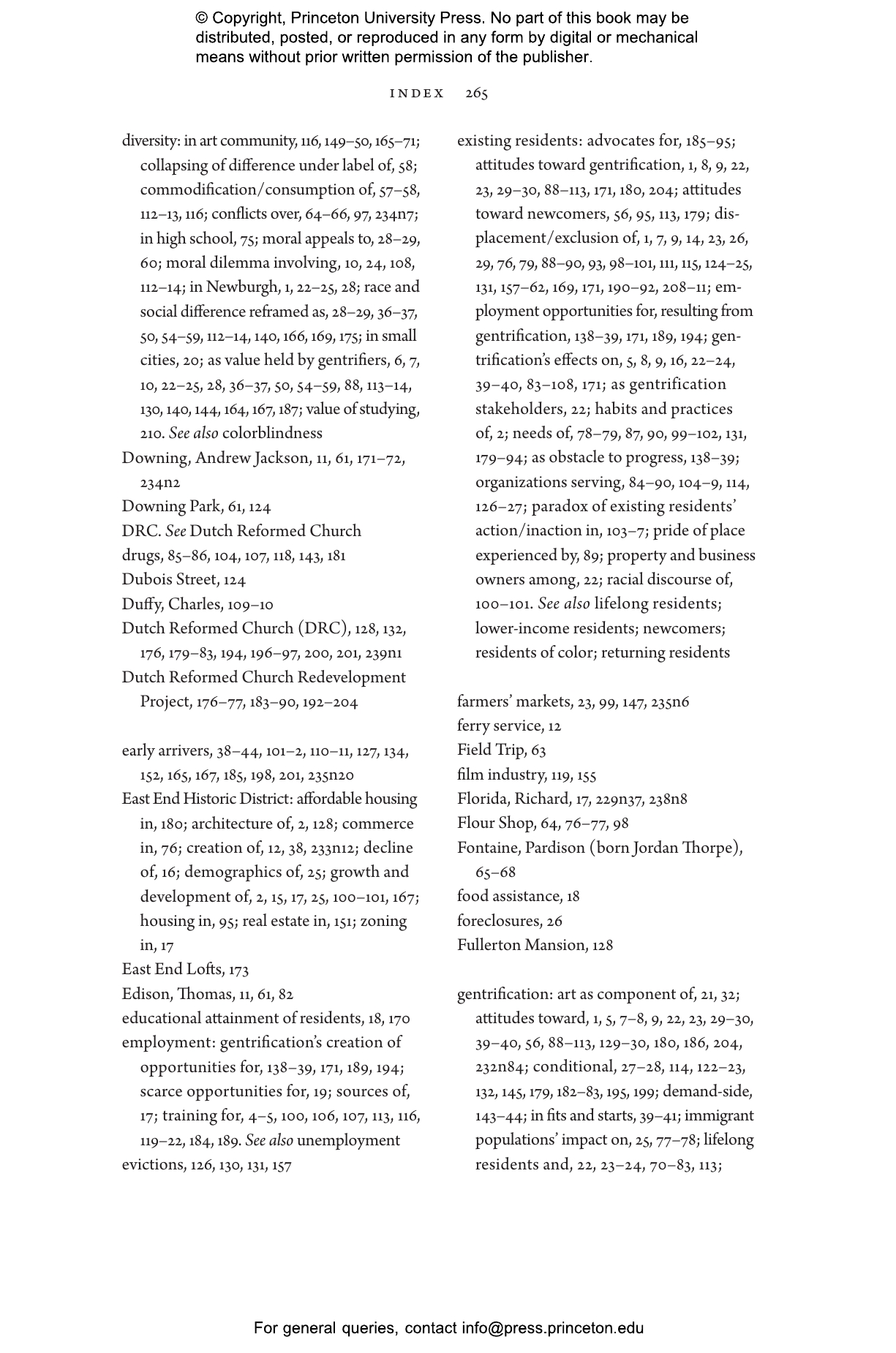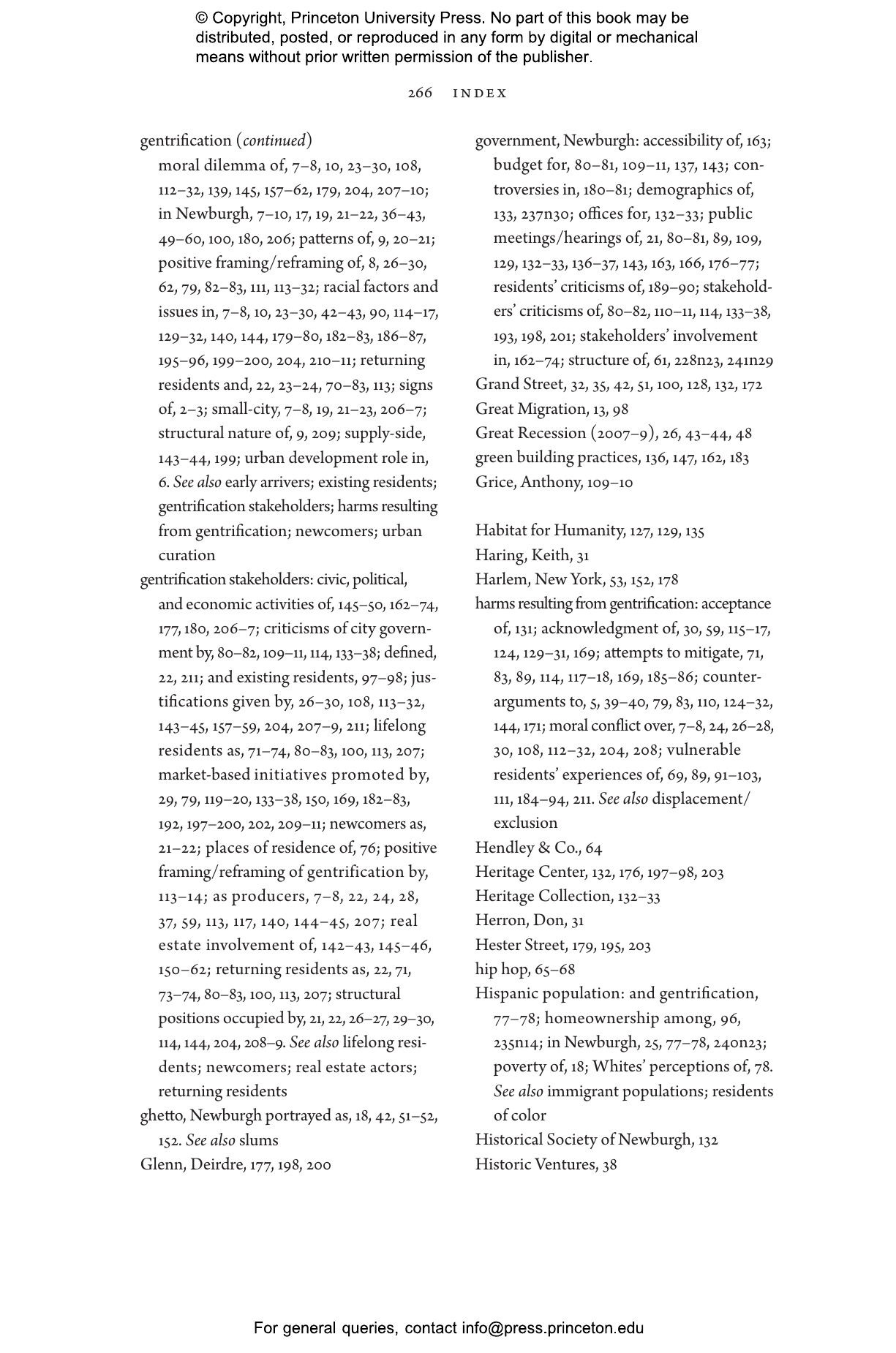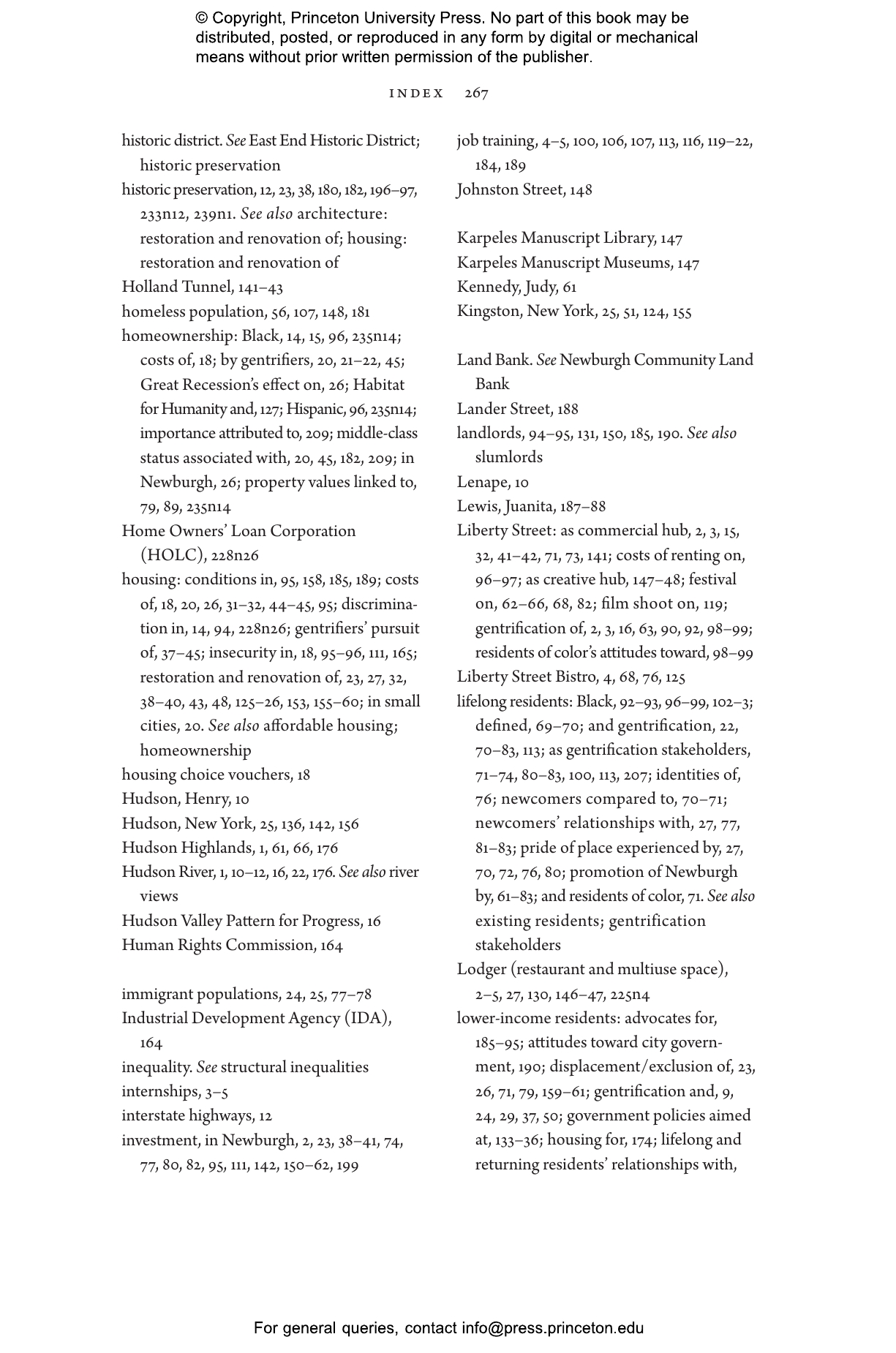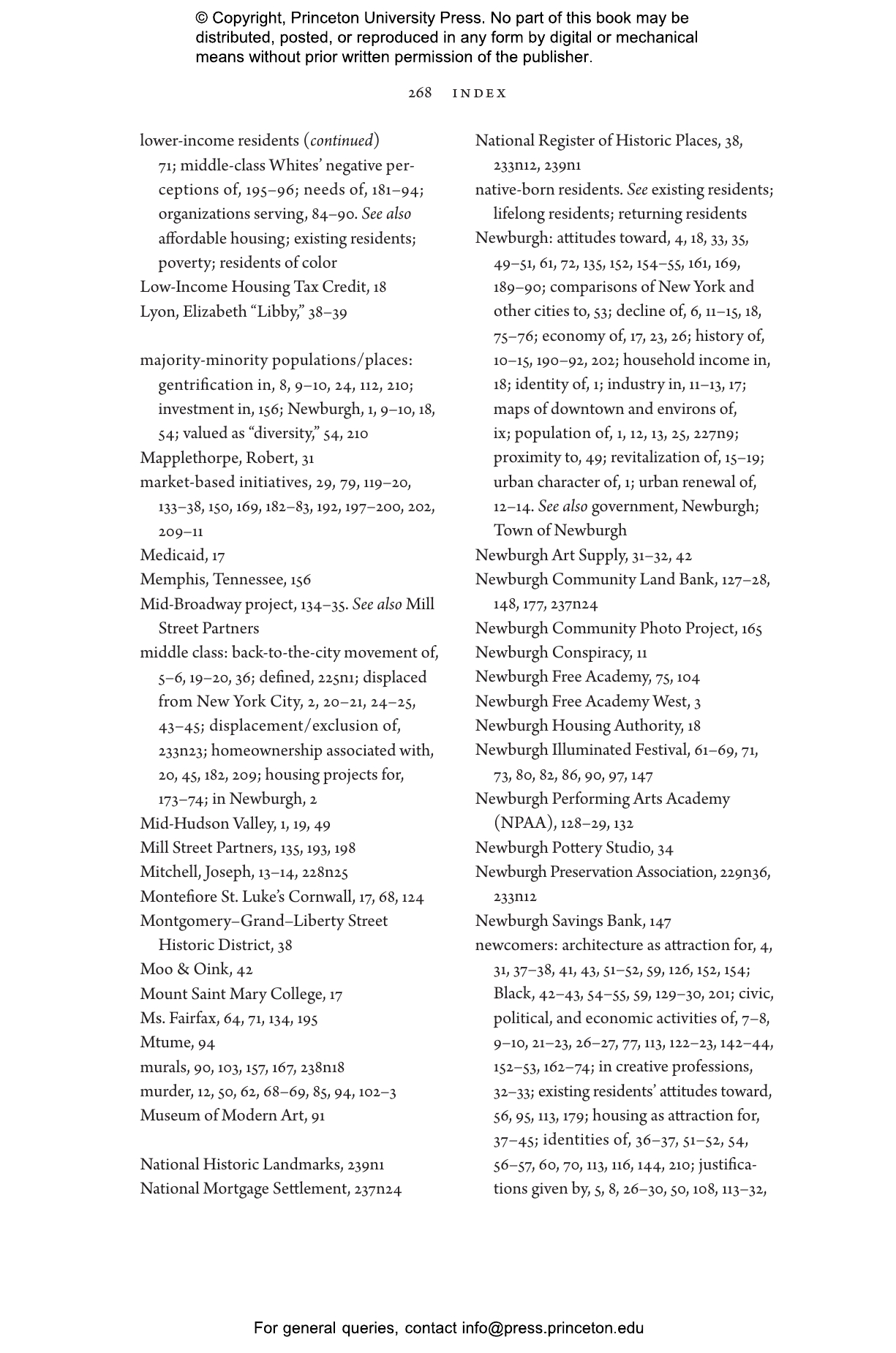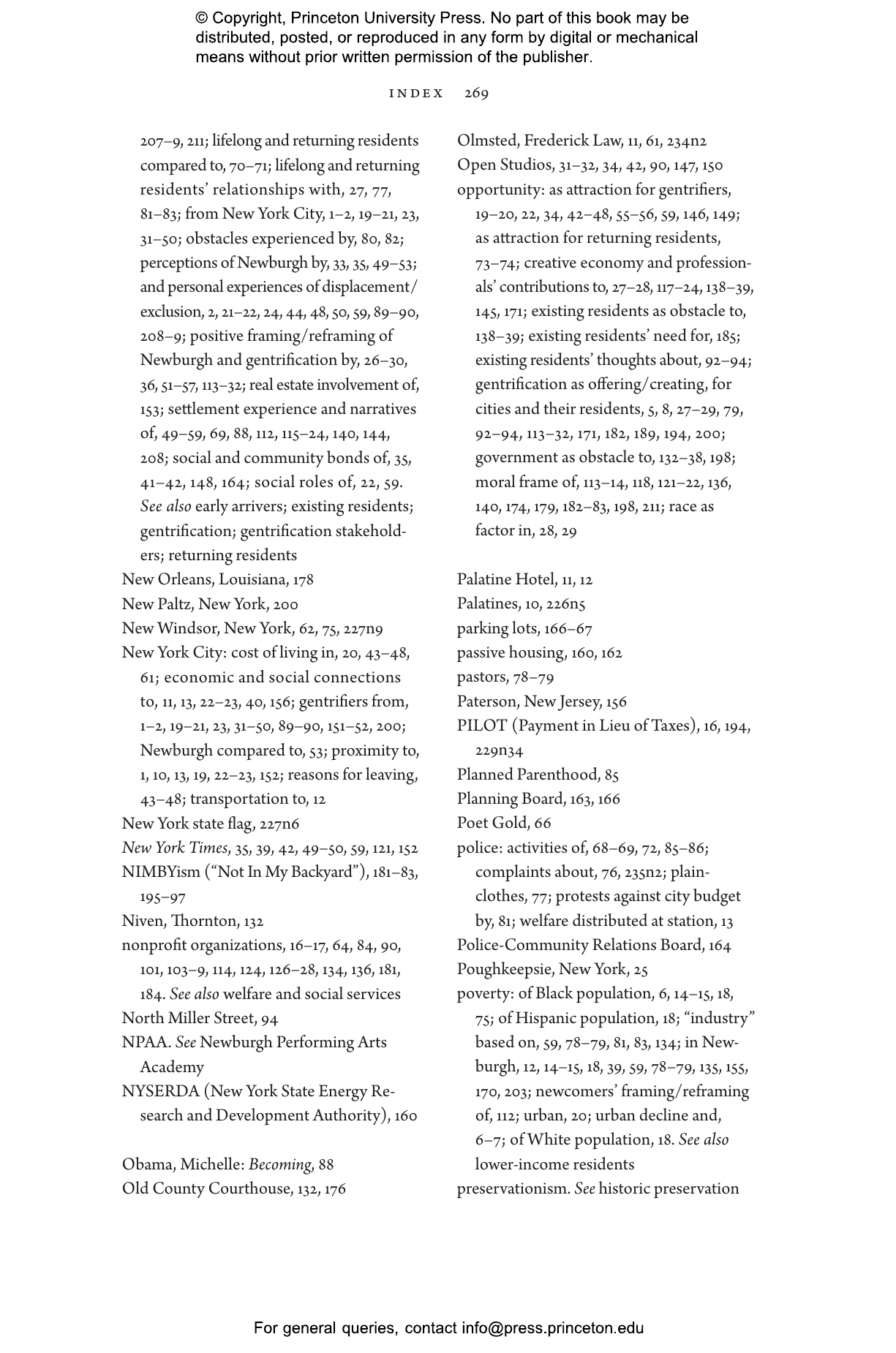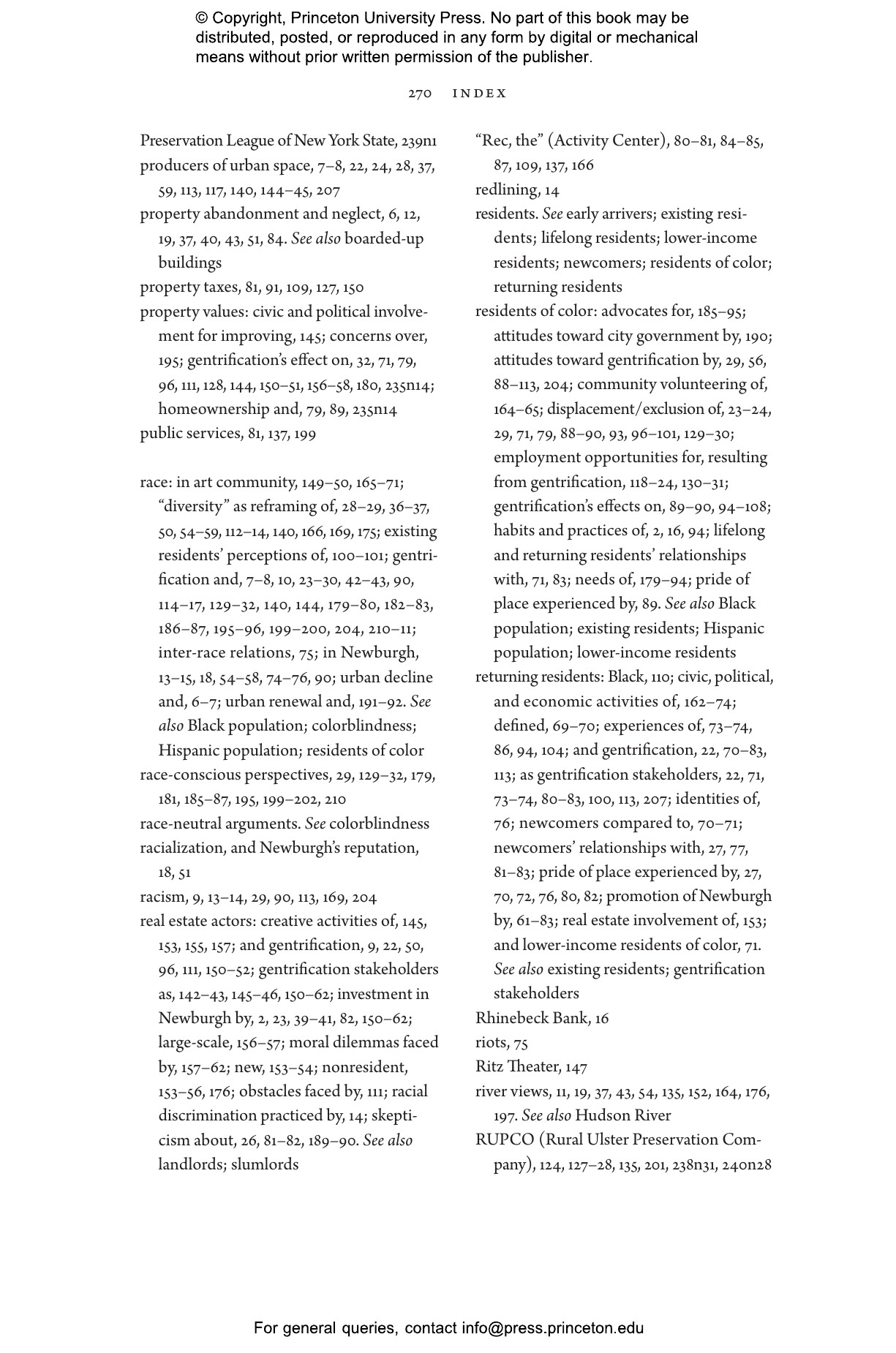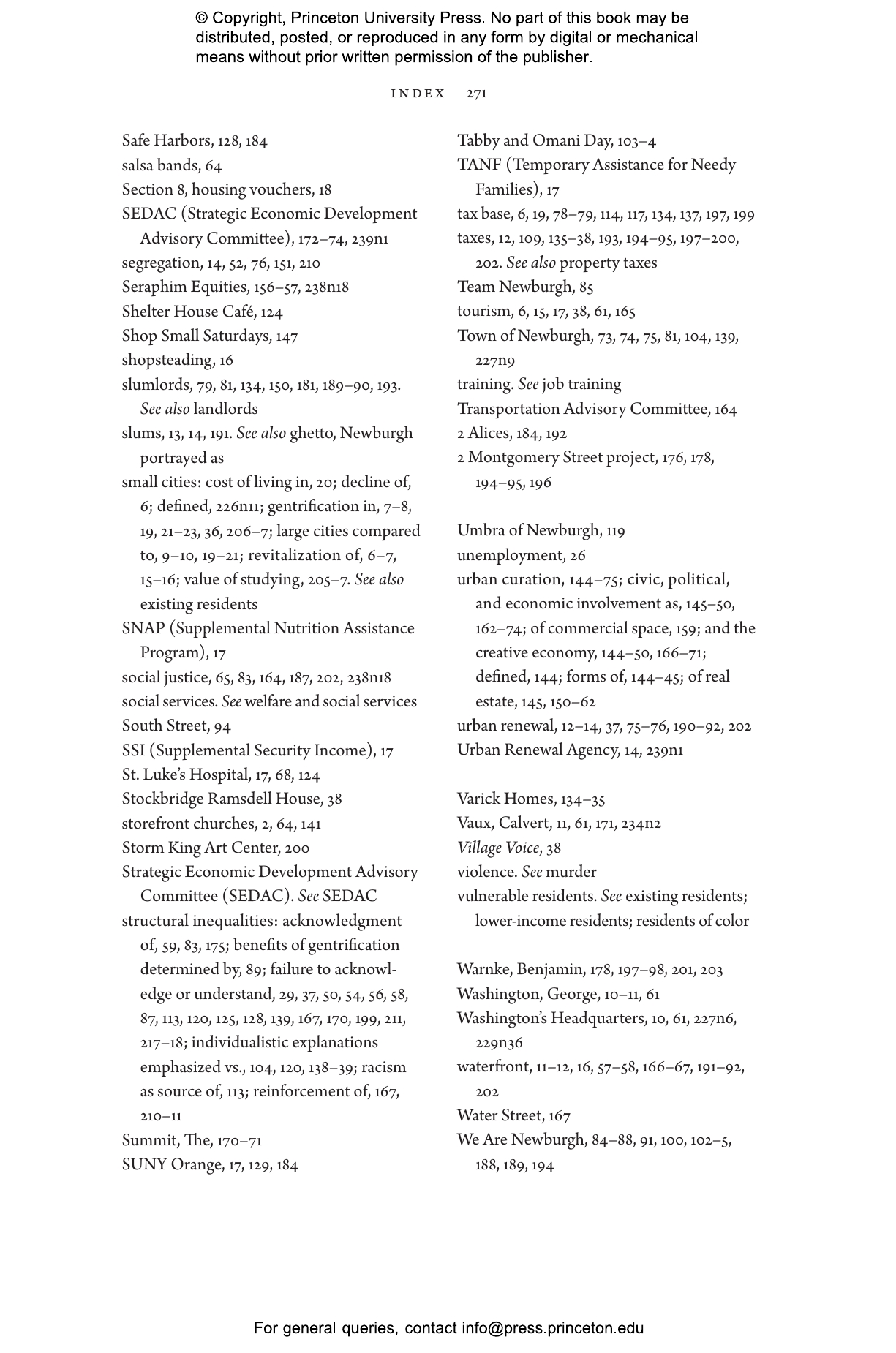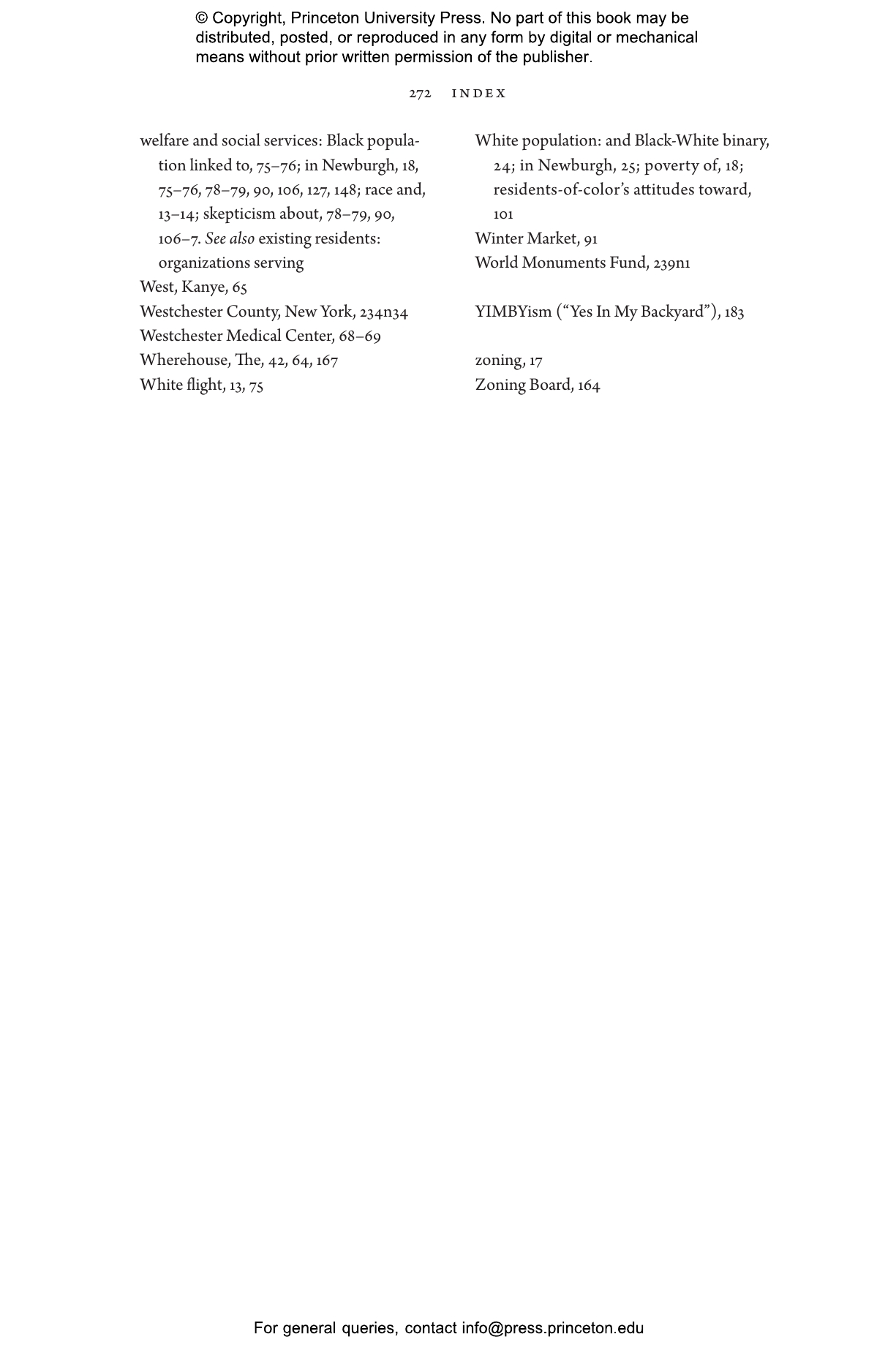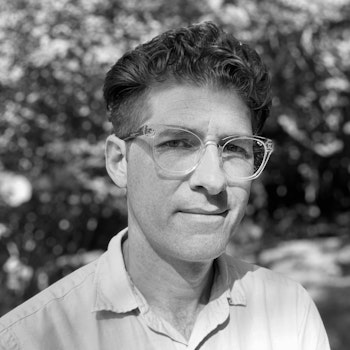Newburgh is a small postindustrial city of some twenty-eight thousand people located sixty miles north of New York City in the Hudson River Valley. Like many other similarly sized cities across America, it has been beset with poverty and crime after decades of decline, with few opportunities for its predominantly minority residents. Sixty Miles Upriver tells the story of how Newburgh started gentrifying, describing what happens when White creative professionals seek out racially diverse and working-class communities and revealing how gentrification is increasingly happening outside large city centers in places where it unfolds in new ways.
As New York City鈥檚 housing market becomes too expensive for even the middle class, many urbanites are bypassing the suburbs and moving to smaller cities like Newburgh, where housing is affordable and historic. Richard Ocejo takes readers into the lives of these newcomers, examining the different ways they navigate racial difference and inequality among Newburgh鈥檚 much less privileged local residents, and showing how stakeholders in the city鈥檚 revitalization reframe themselves and gentrification to cast the displacement they cause to minority groups in a positive light.
An intimate exploration of the moral dilemma at the heart of gentrification, Sixty Miles Upriver explains how progressive White gentrifiers justify controversial urban changes as morally good, and how their actions carry profound and lasting consequences for vulnerable residents of color.
Richard E. Ocejo is professor of sociology at John Jay College and the Graduate Center, City University of New York. He is the author of Masters of Craft: Old Jobs in the New Urban Economy and Upscaling Downtown: From Bowery Saloons to Cocktail Bars in New York City (both Princeton).
"An engaging narrative that enhances our understanding of gentrification in smaller cities. As cities and the forces driving gentrification evolve continually, [Sixty Miles Upriver] provides a valuable addition to the field."鈥擬ario Hernandez, The Metropole
“Gentrification used to be a term associated with dense urban neighborhoods—but not anymore. Remote work and digitally enabled Zoom towns have put small communities in the Hudson Valley squarely in the crosshairs. In this engaging work, Richard Ocejo examines the economic contradictions and cultural challenges that this escalating process brings.”—Richard Florida, author of The Rise of the Creative Class
“Sixty Miles Upriver is a richly insightful account of how a small city experiencing new patterns of gentrification has become the center of complex negotiations over place, politics, discourse, and culture. This book will have a profound impact on the way we write and think about gentrification, race, and urbanism.”—Brandi Thompson Summers, author of Black in Place: The Spatial Aesthetics of Race in a Post-Chocolate City
“Ocejo illuminates the conflicts in a municipality grappling with issues of poverty and diversity, and a desire to stimulate neighborhood revitalization without advancing racial inequality. A nuanced account of a neglected American narrative, this is a must-read for anyone who wants to know what happens when a small city simultaneously pursues gentrification and equitable development.”—Derek S. Hyra, author of Race, Class, and Politics in the Cappuccino City
“A welcome addition to the literature on gentrification, Sixty Miles Upriver sheds light on the moral calculus that gentrifiers rely on as they transform the places they seek out and value. This engaging and timely book is a testament to the importance of studying smaller places, and, more specifically, of charting how gentrification unfolds across different scales, not just in the big metropolises on which most research focuses.”—Japonica Brown-Saracino, Boston University
